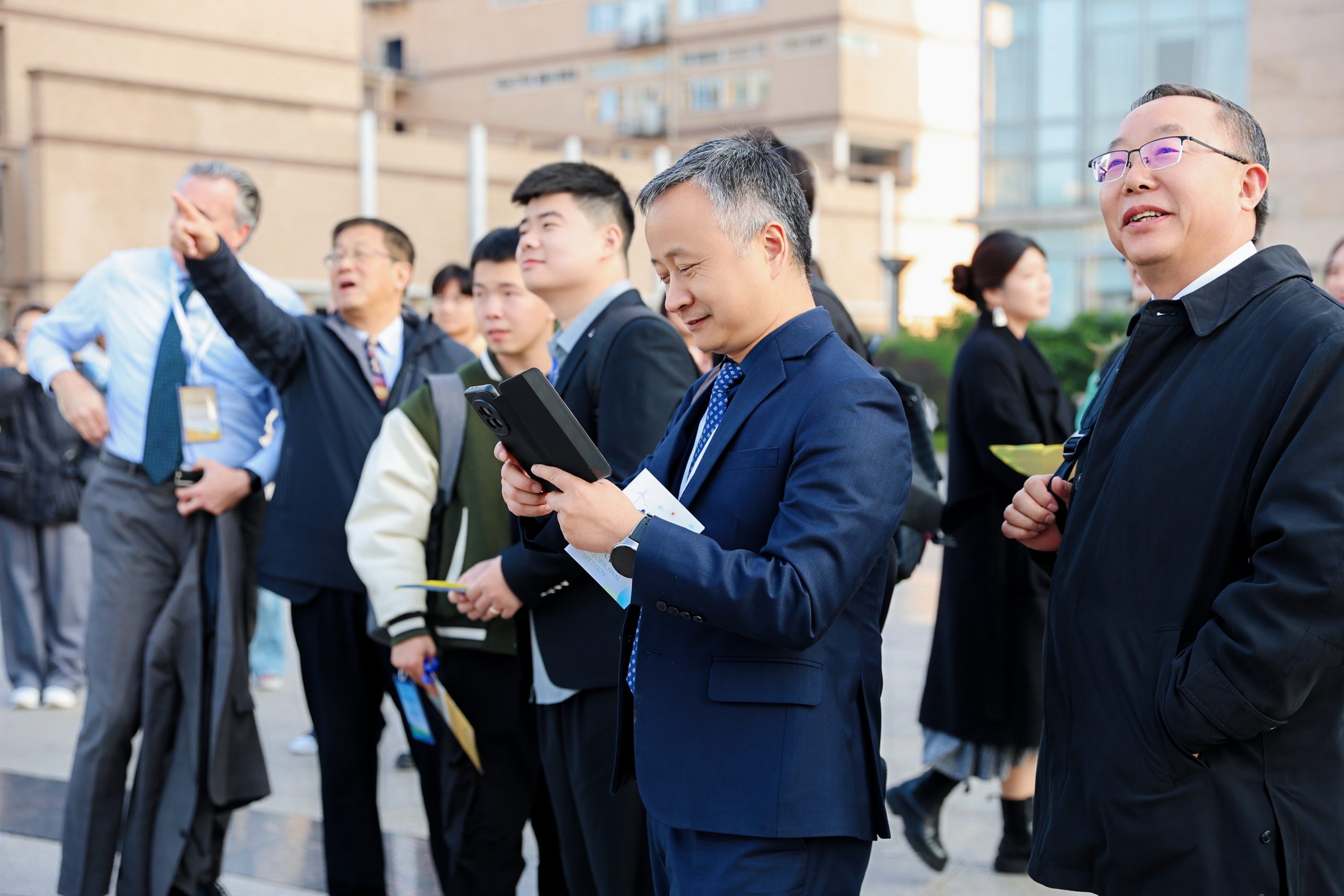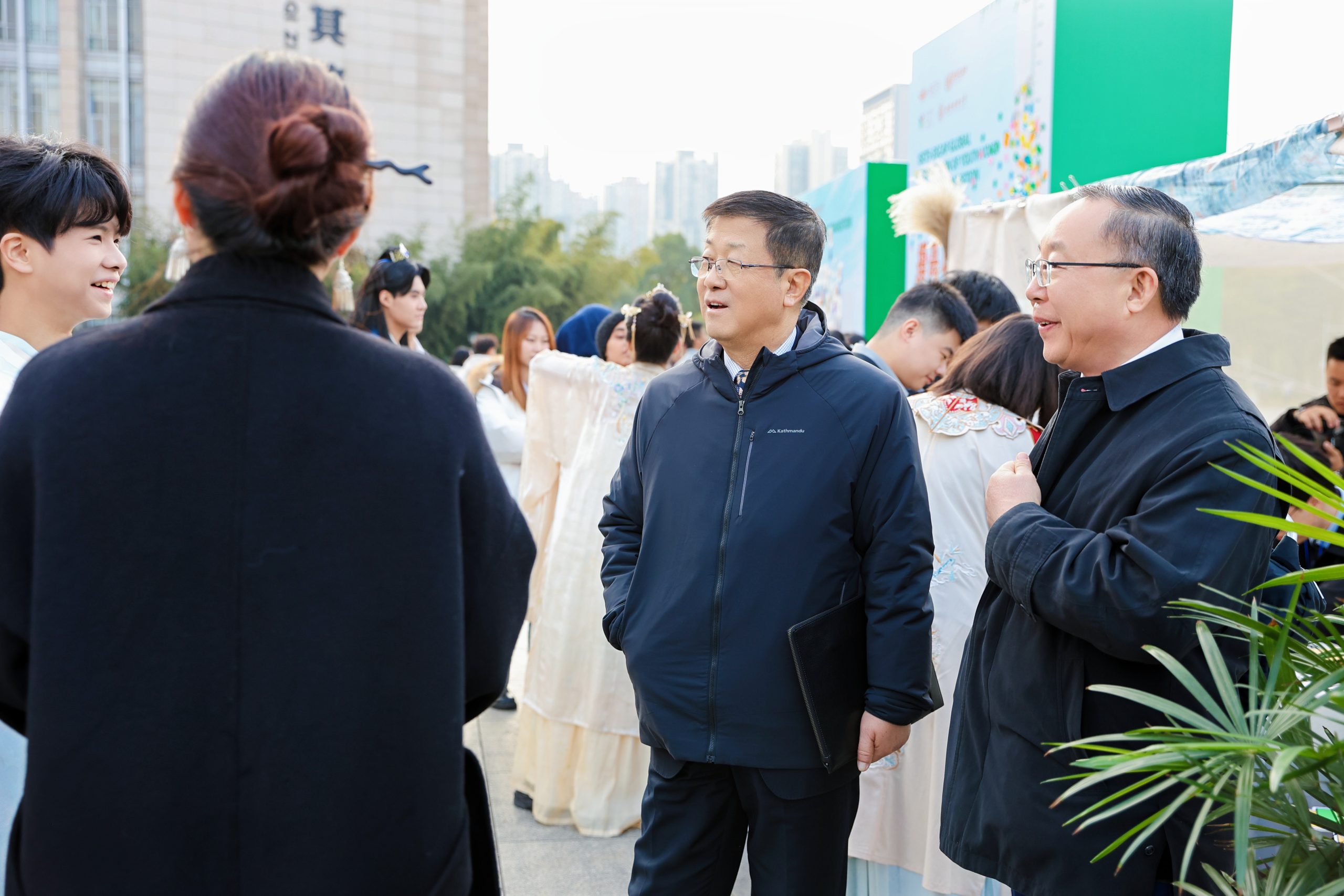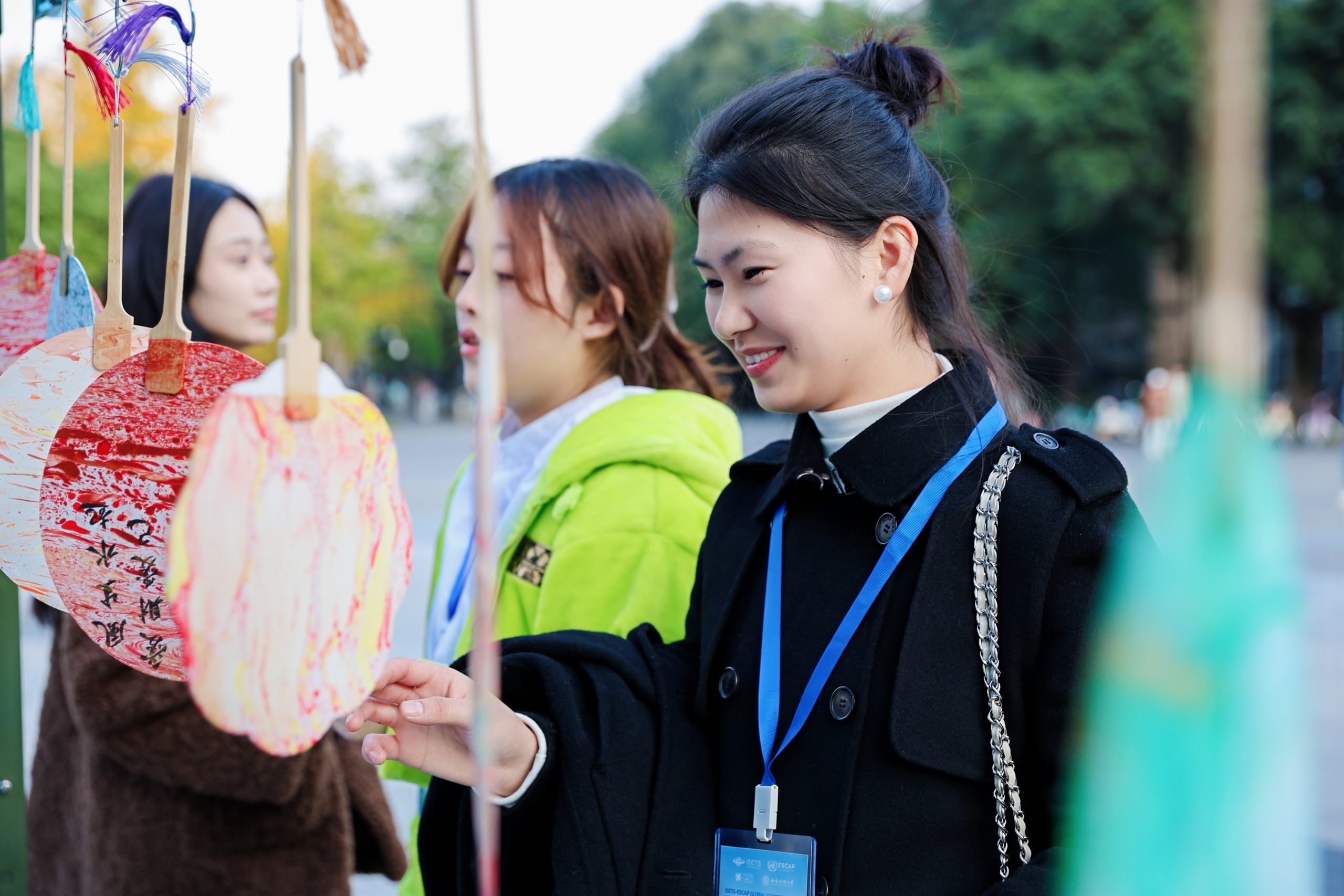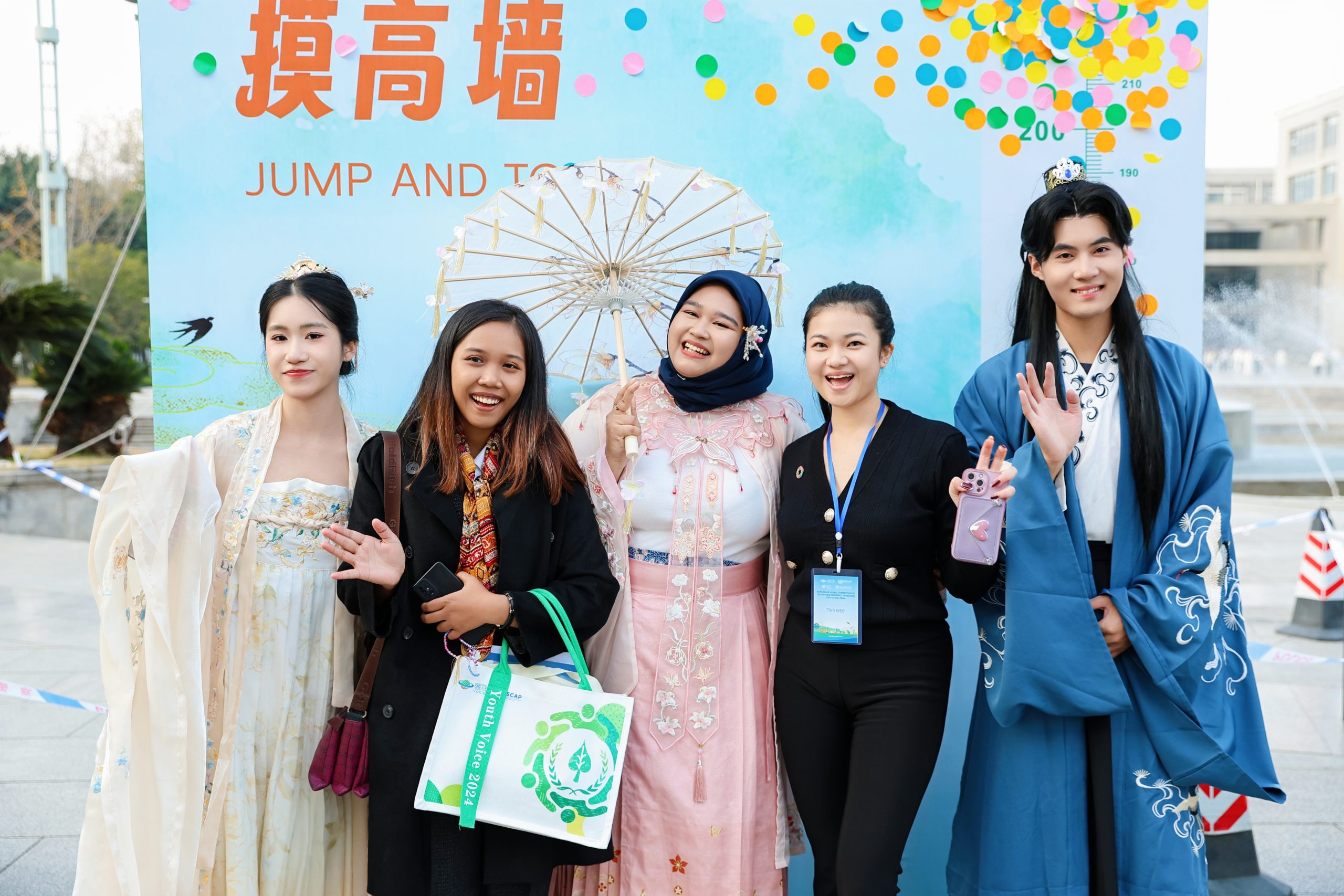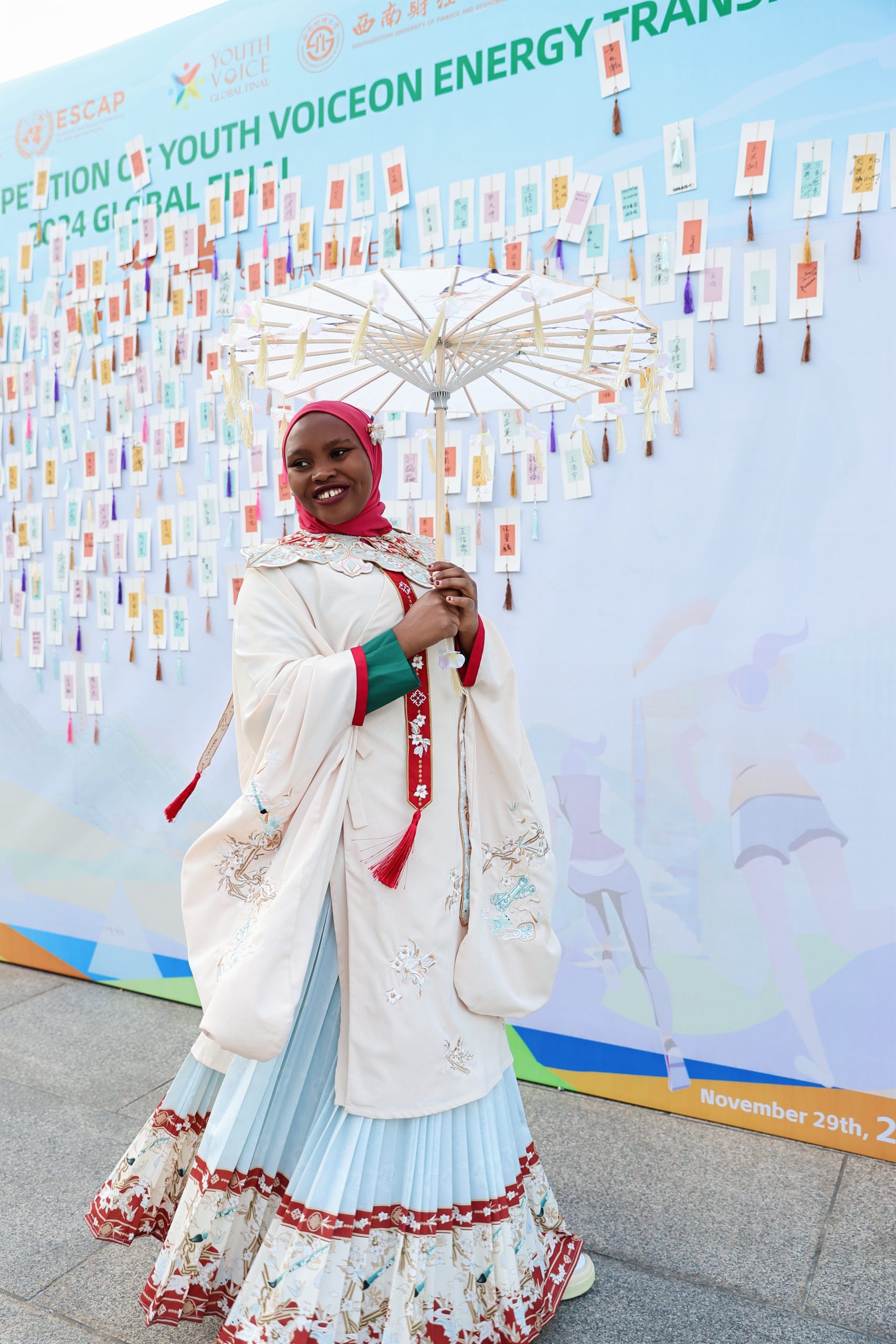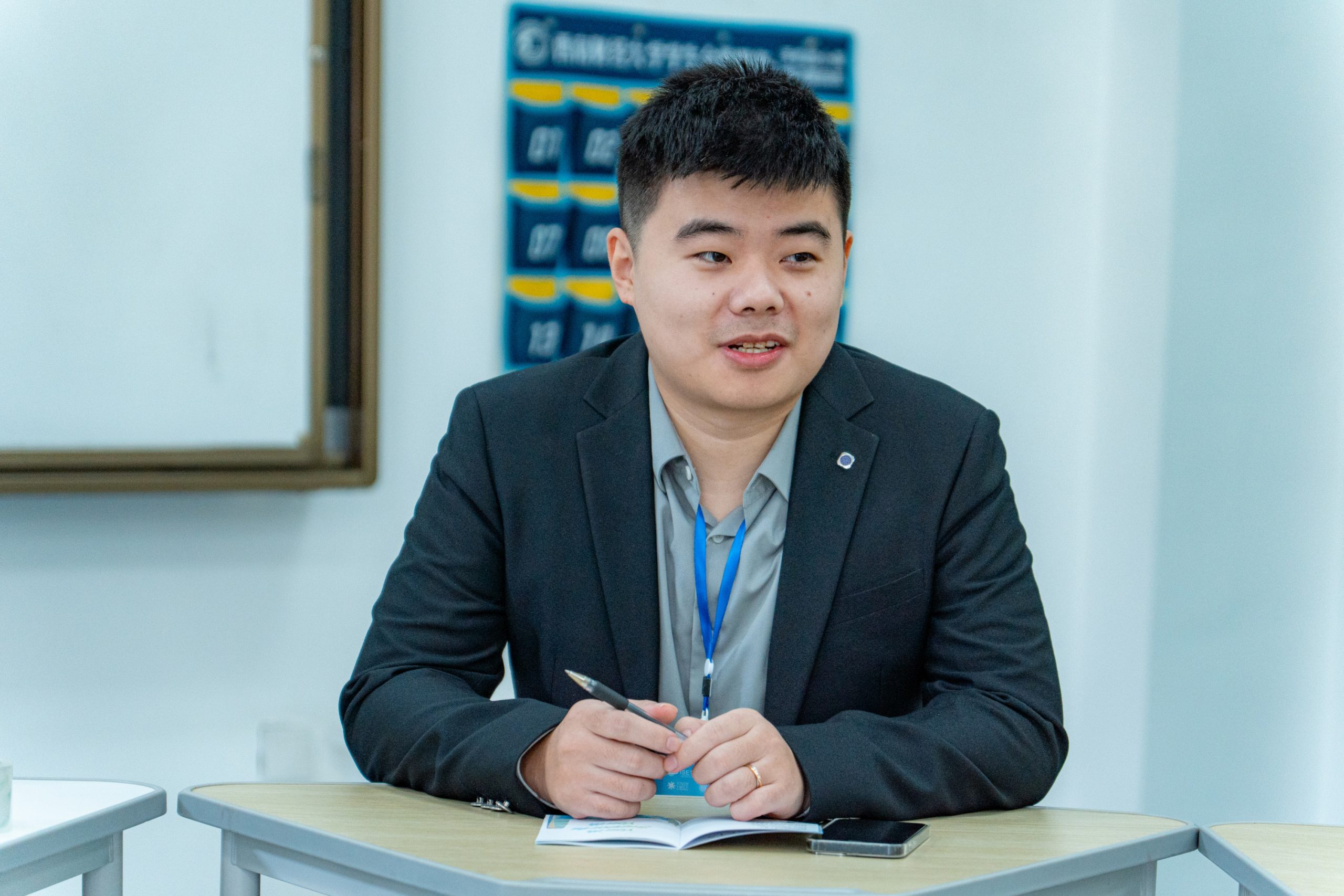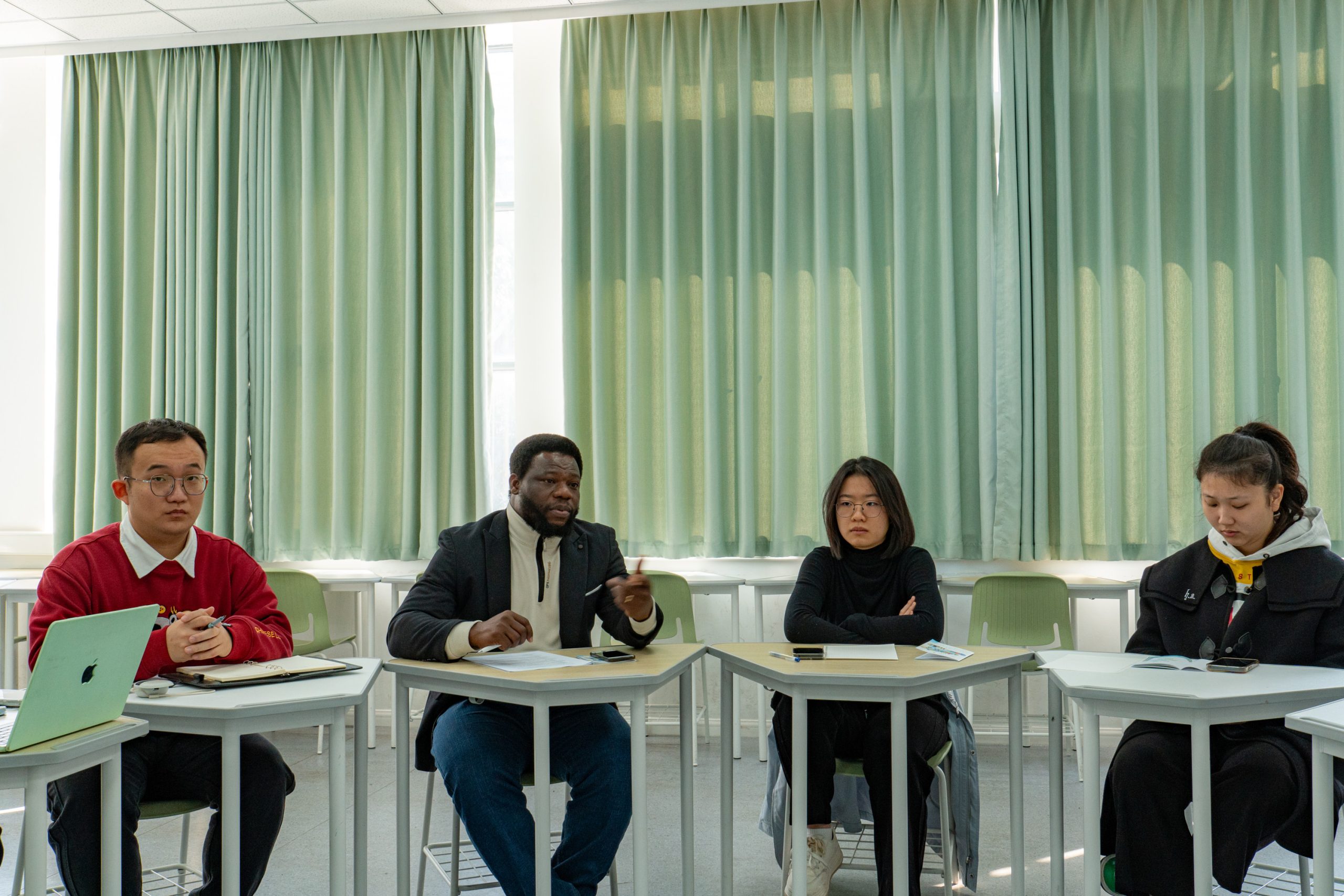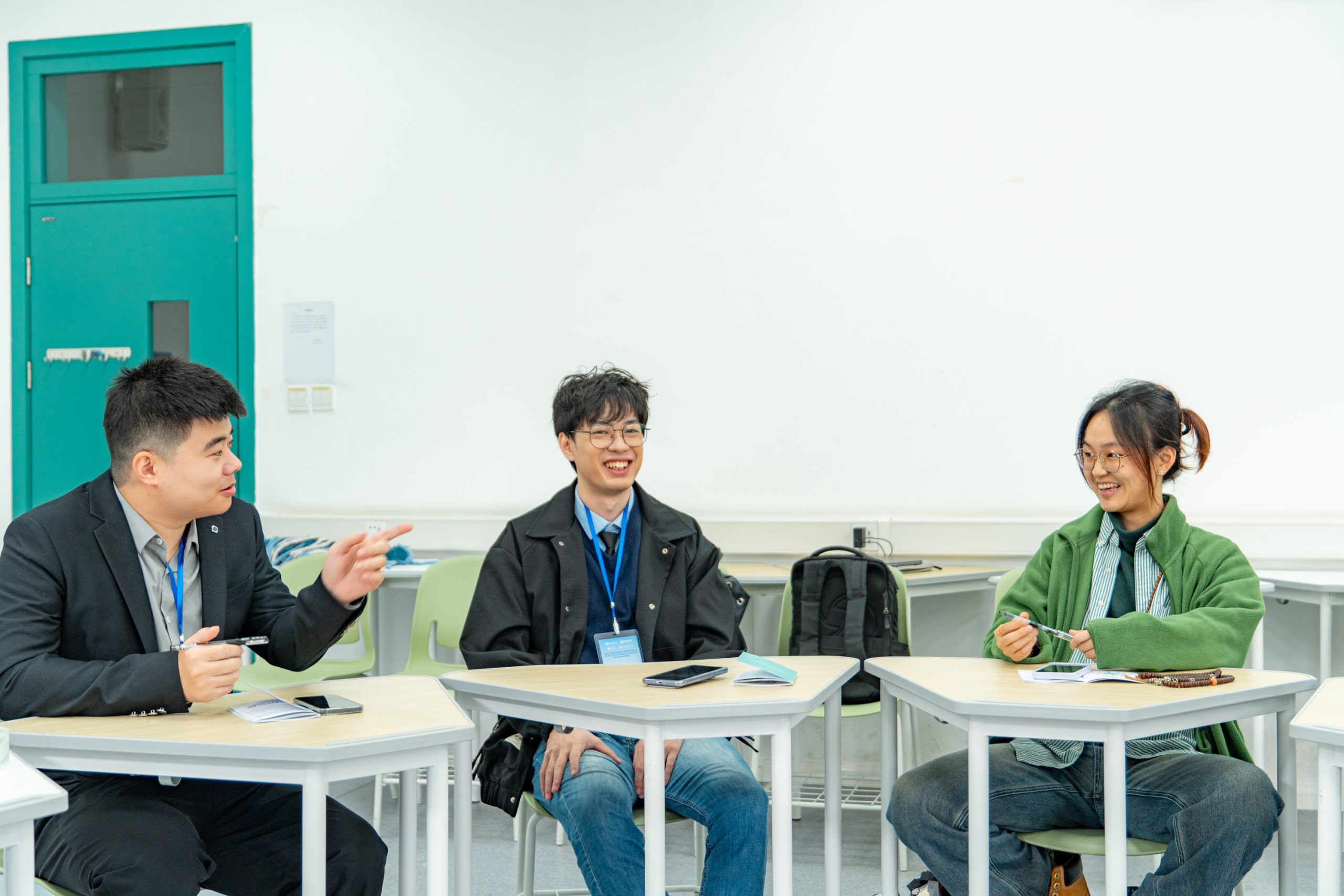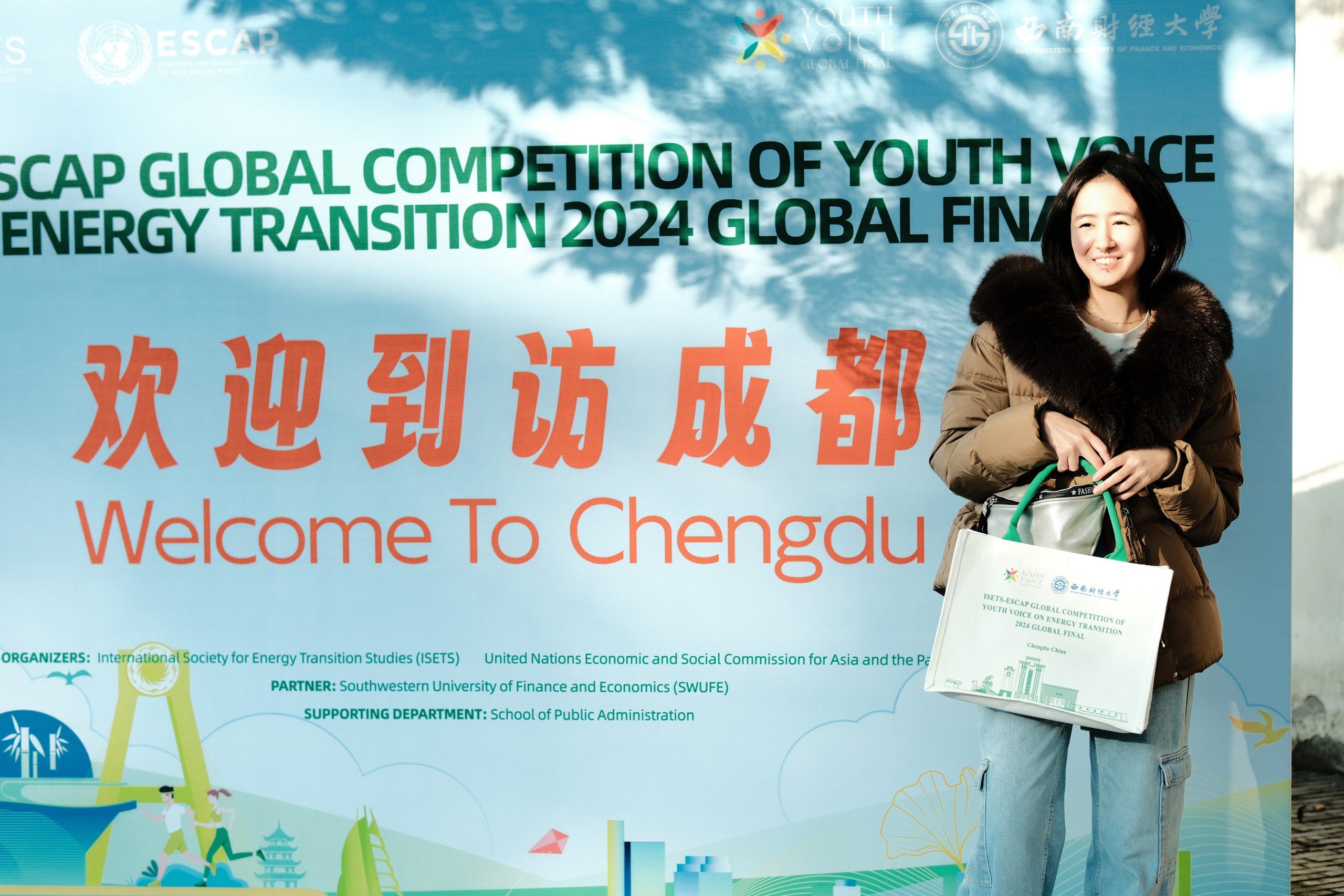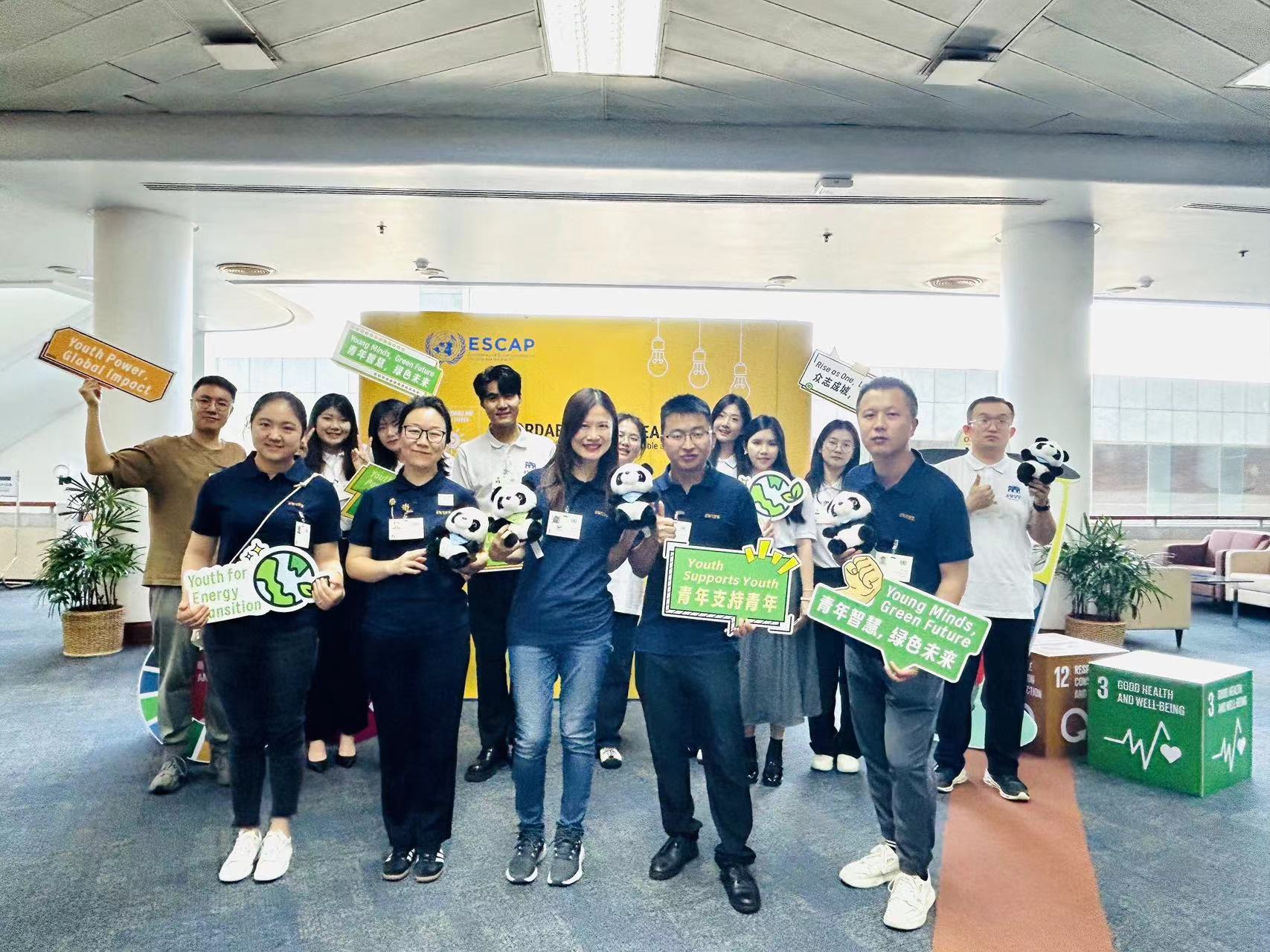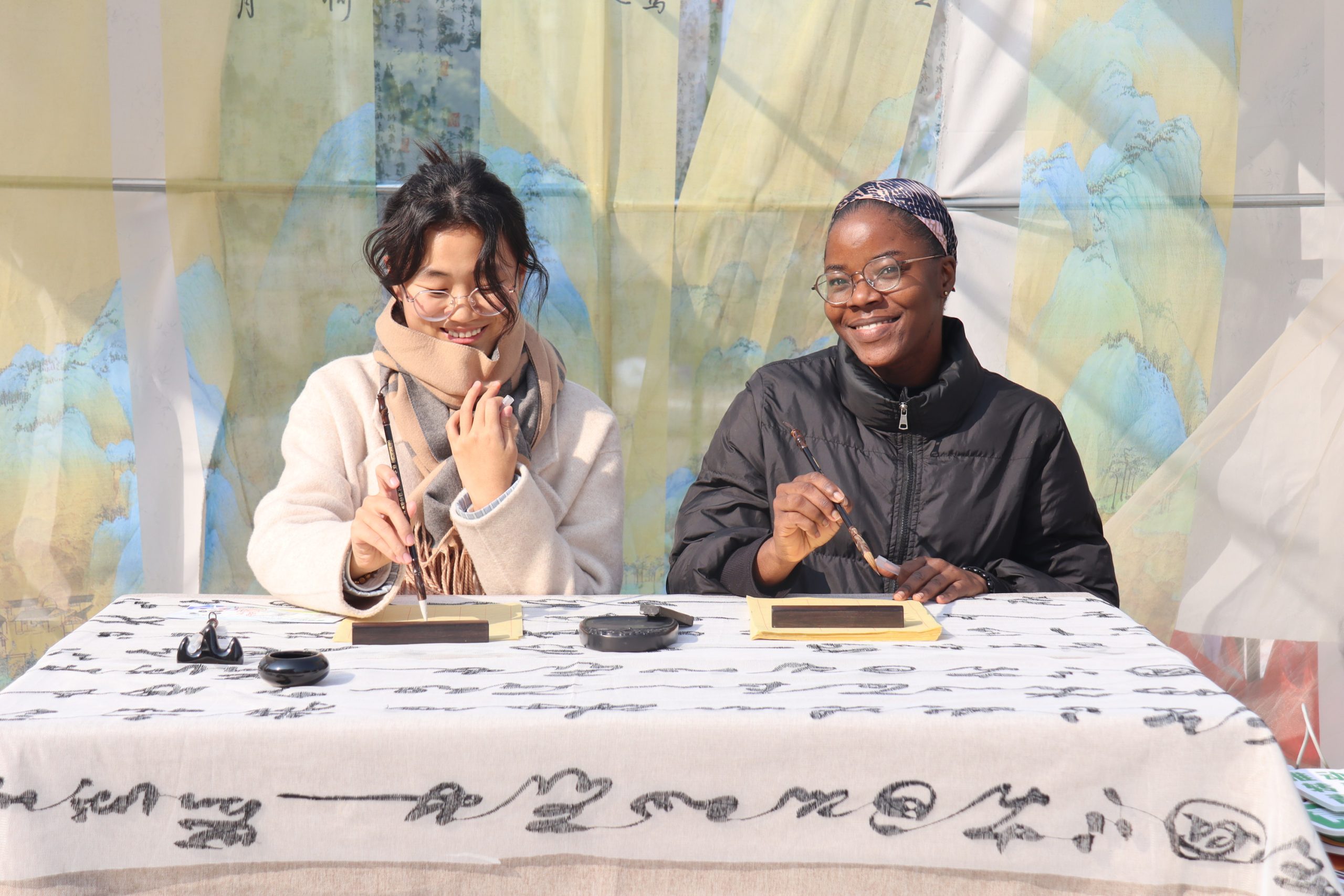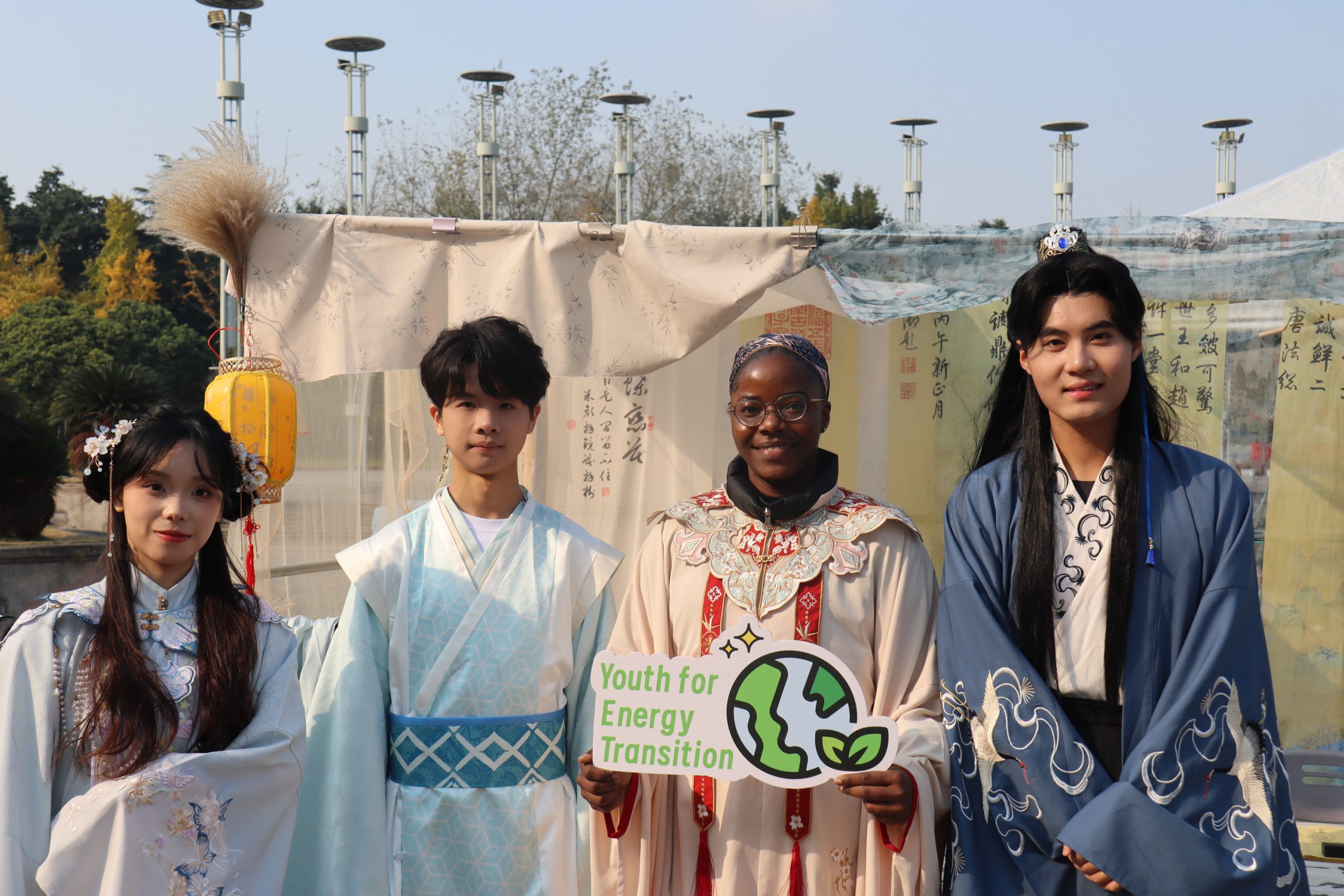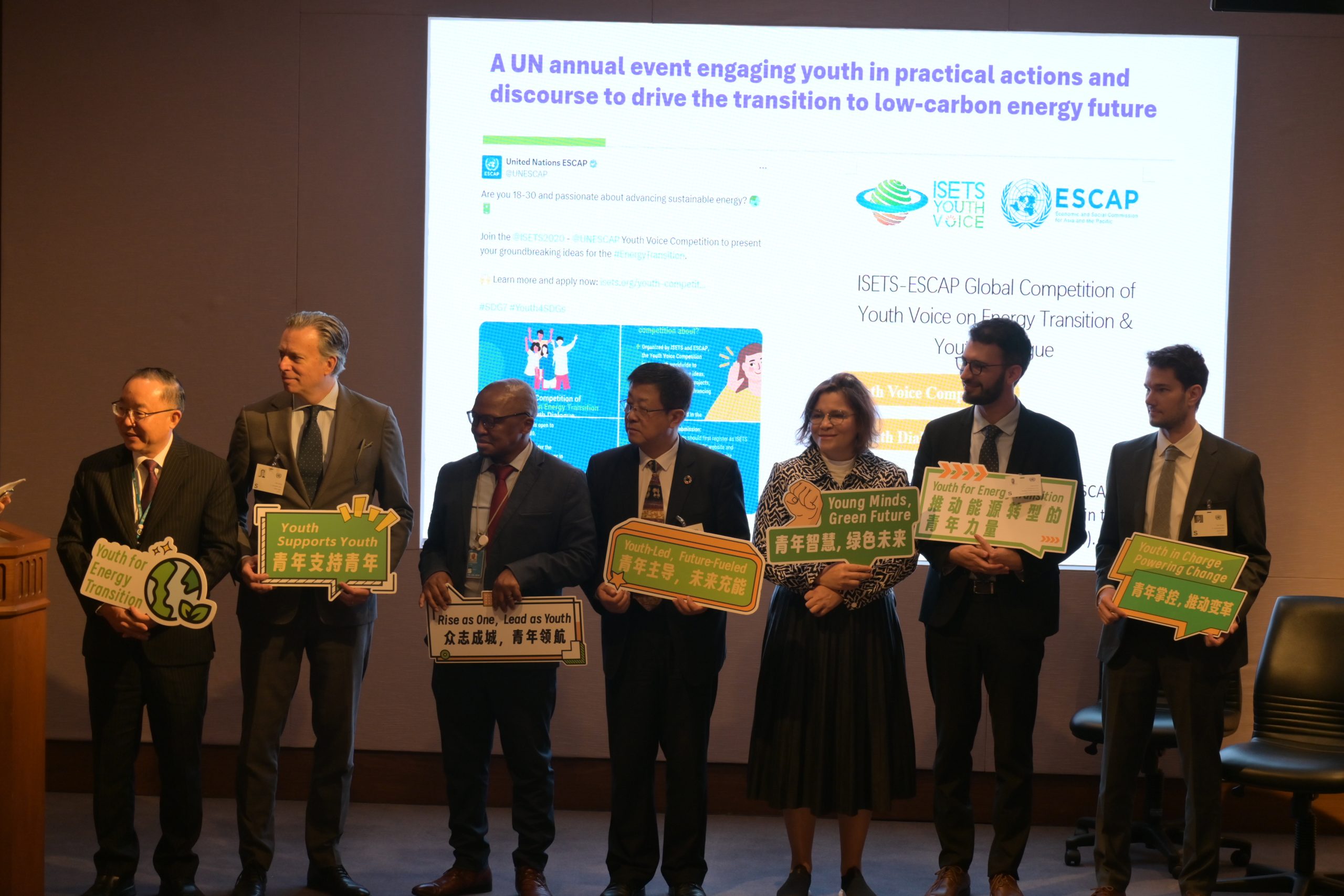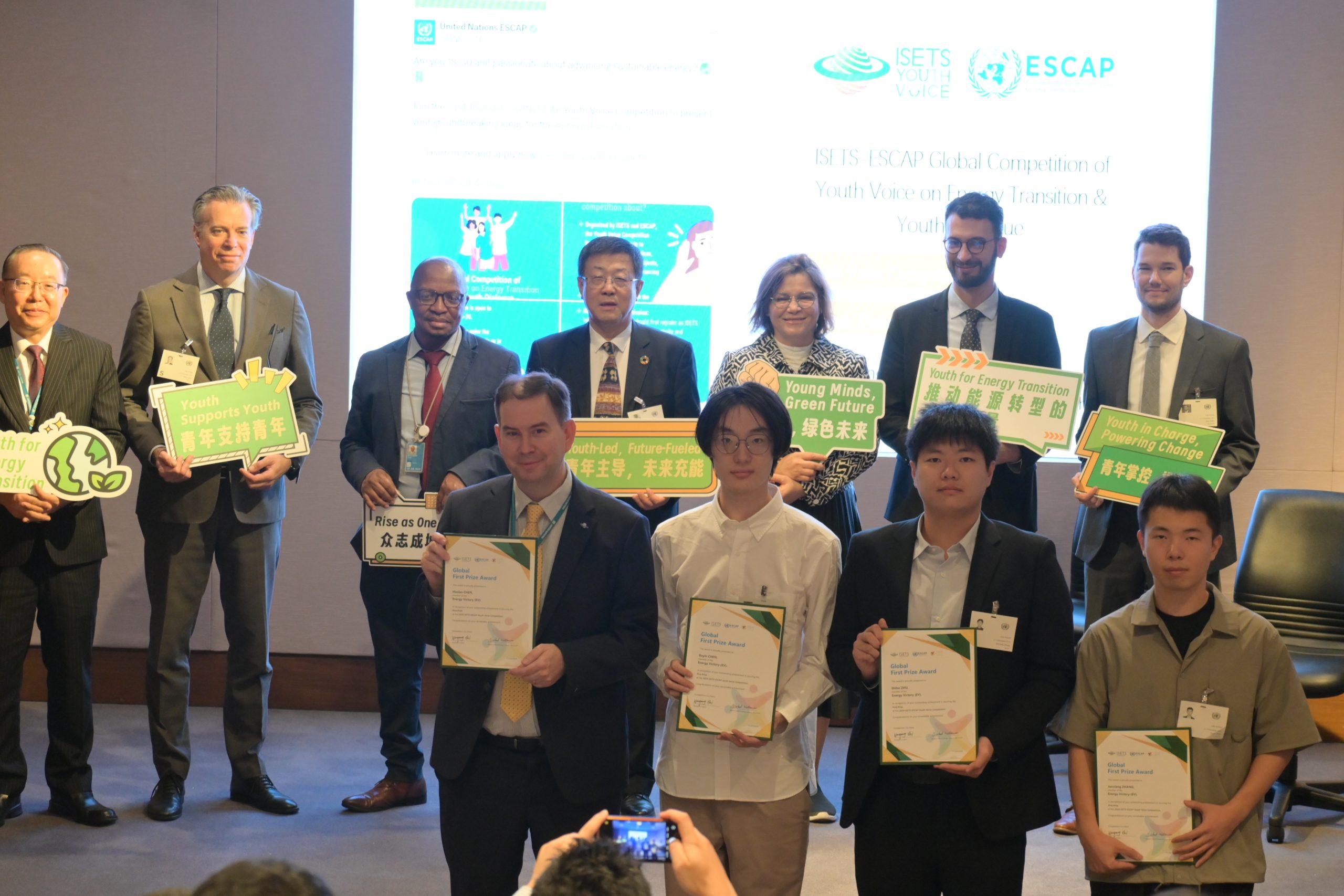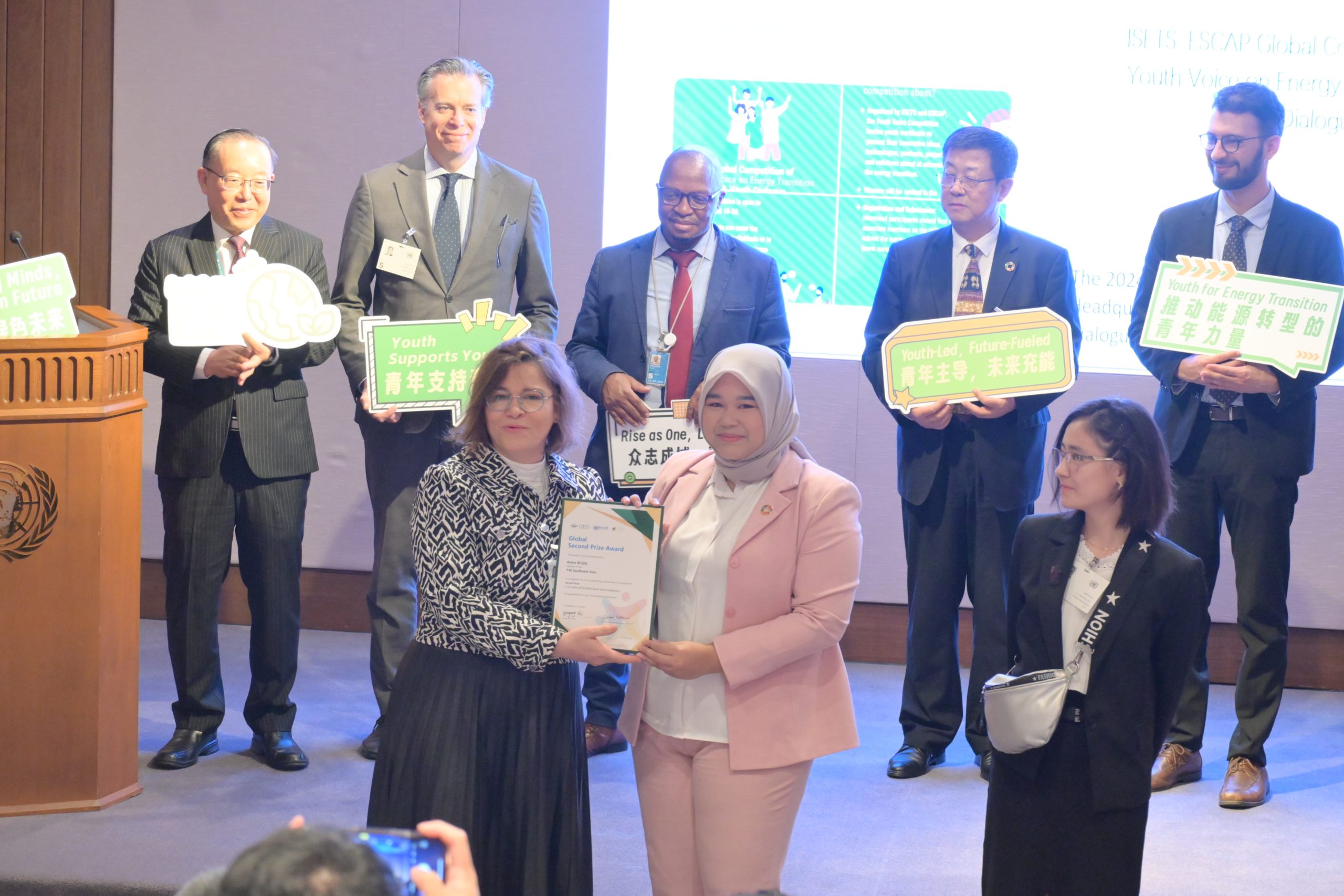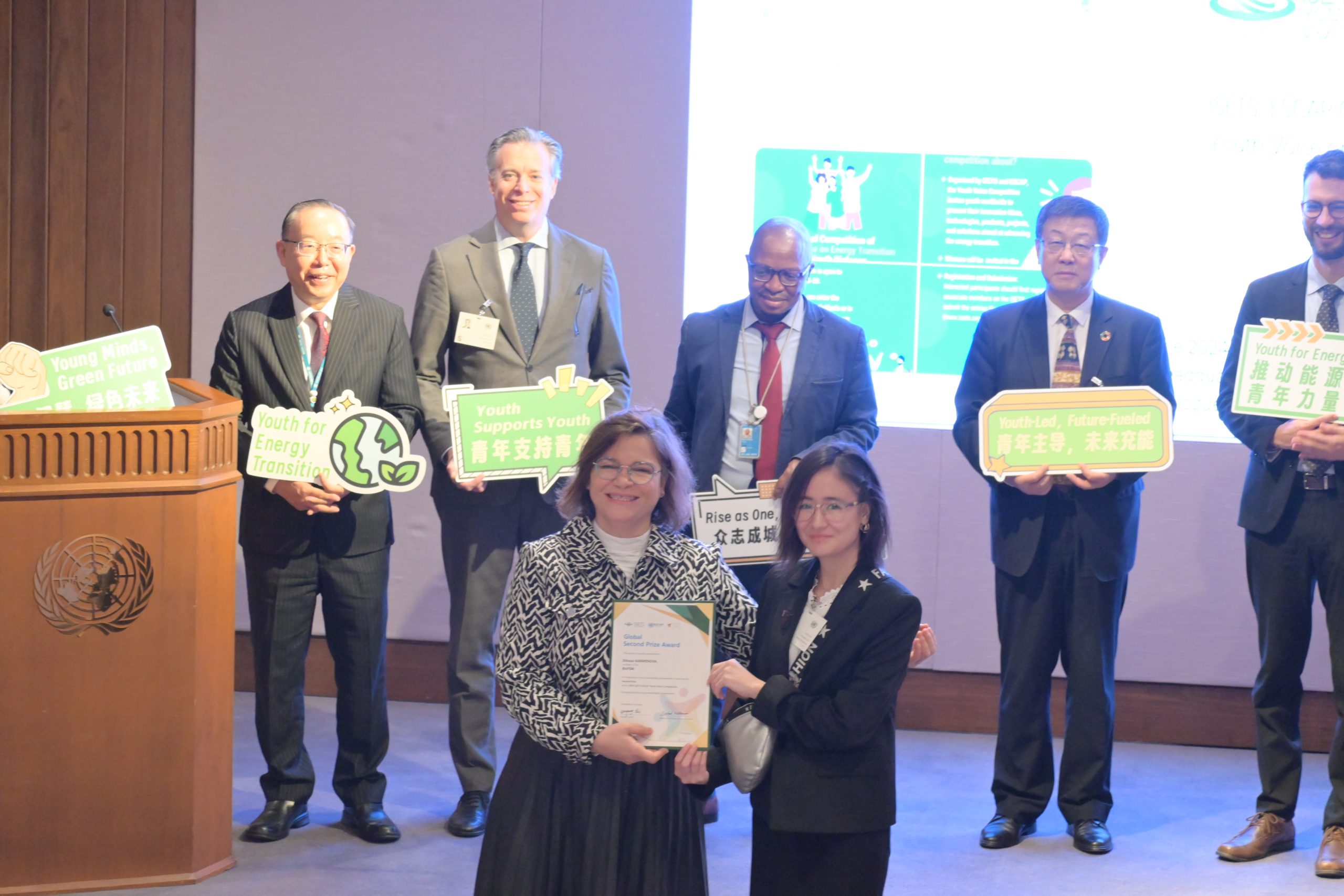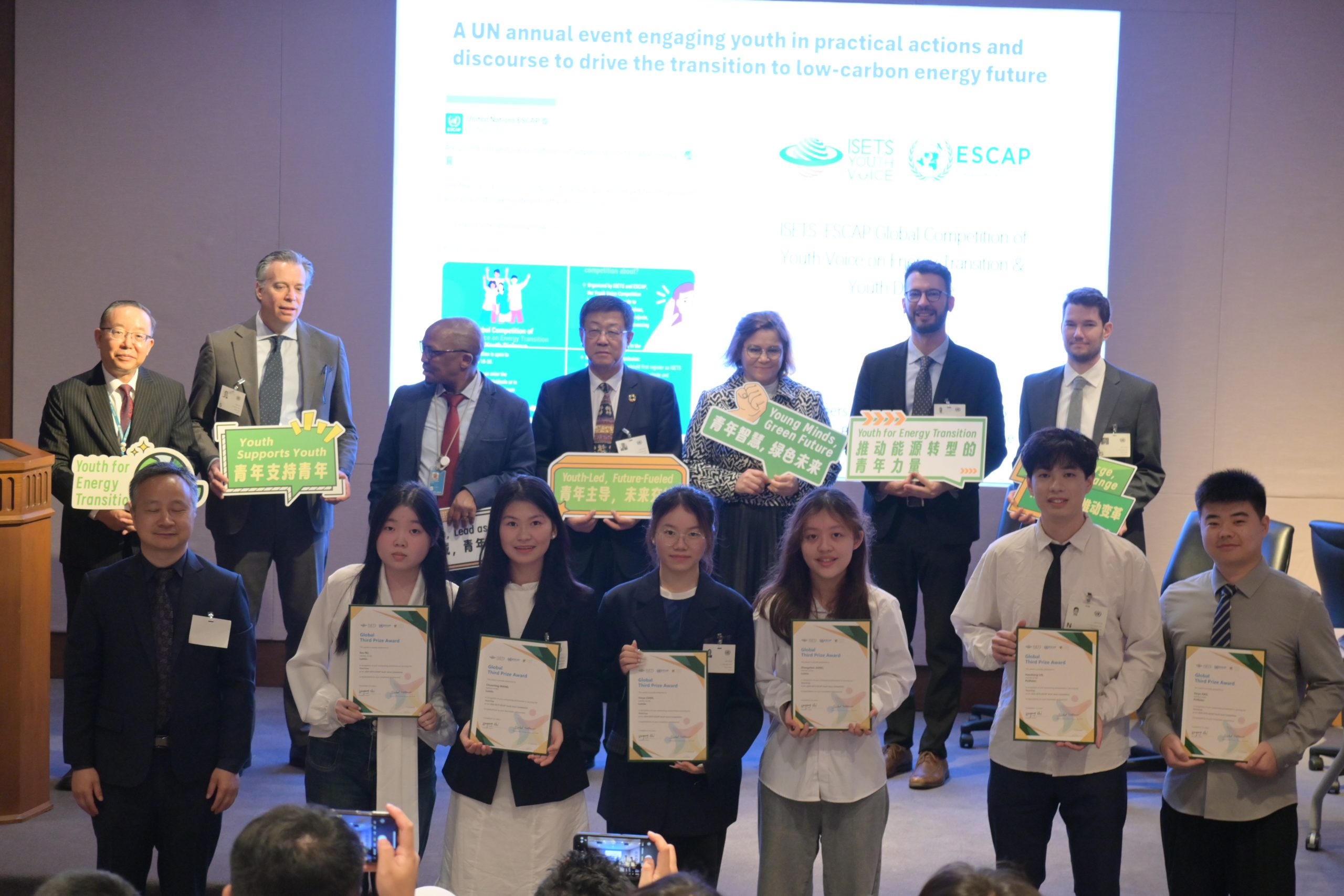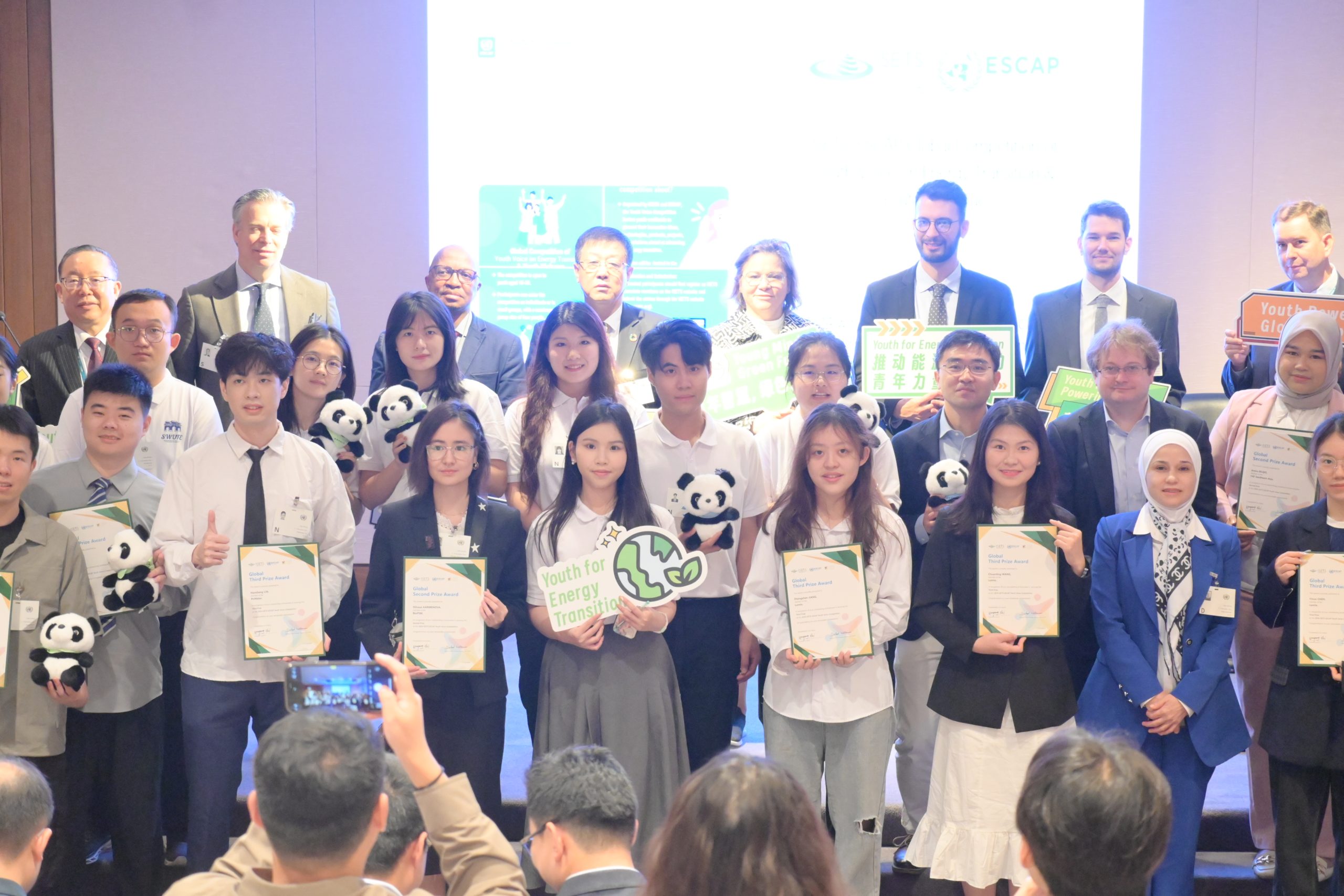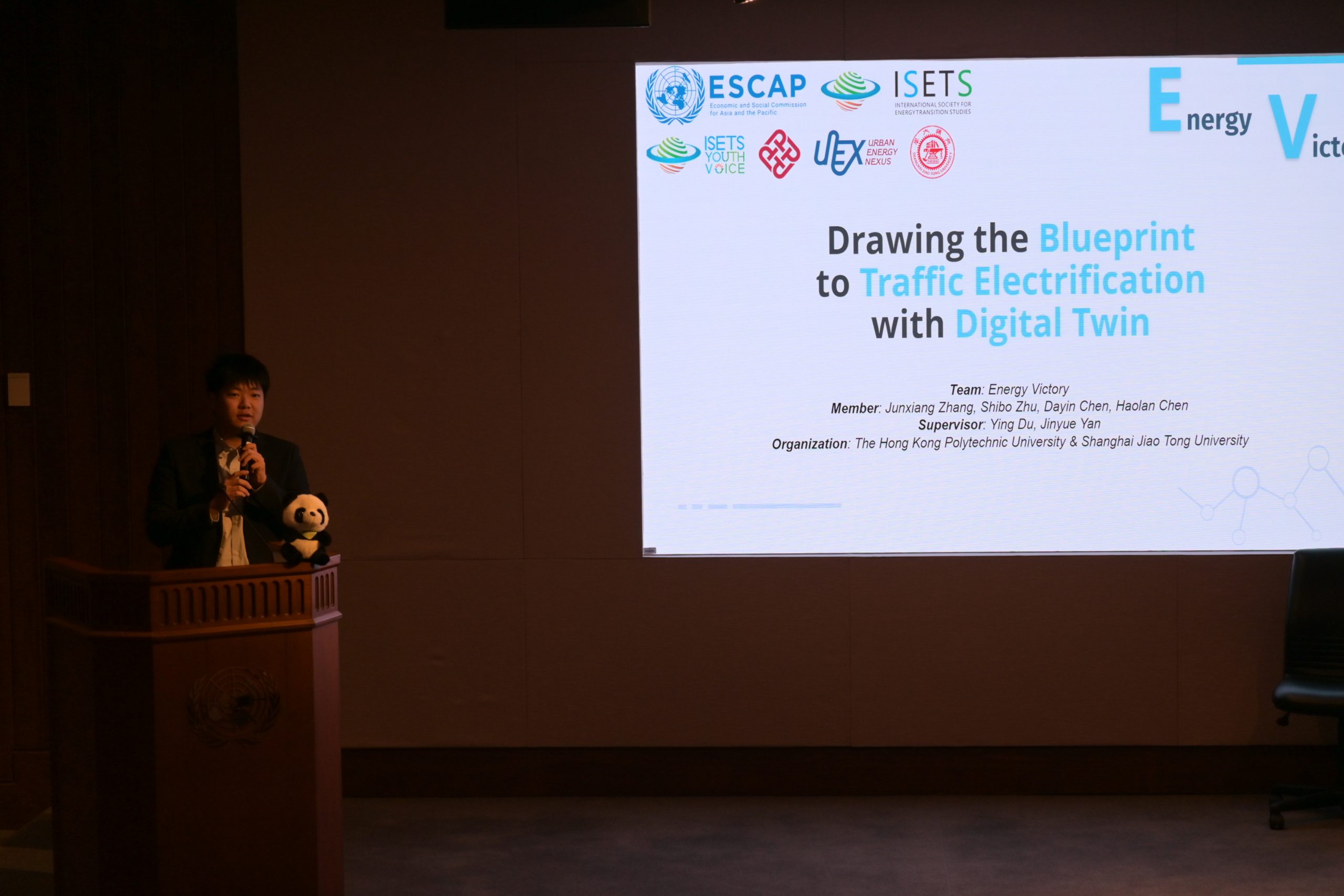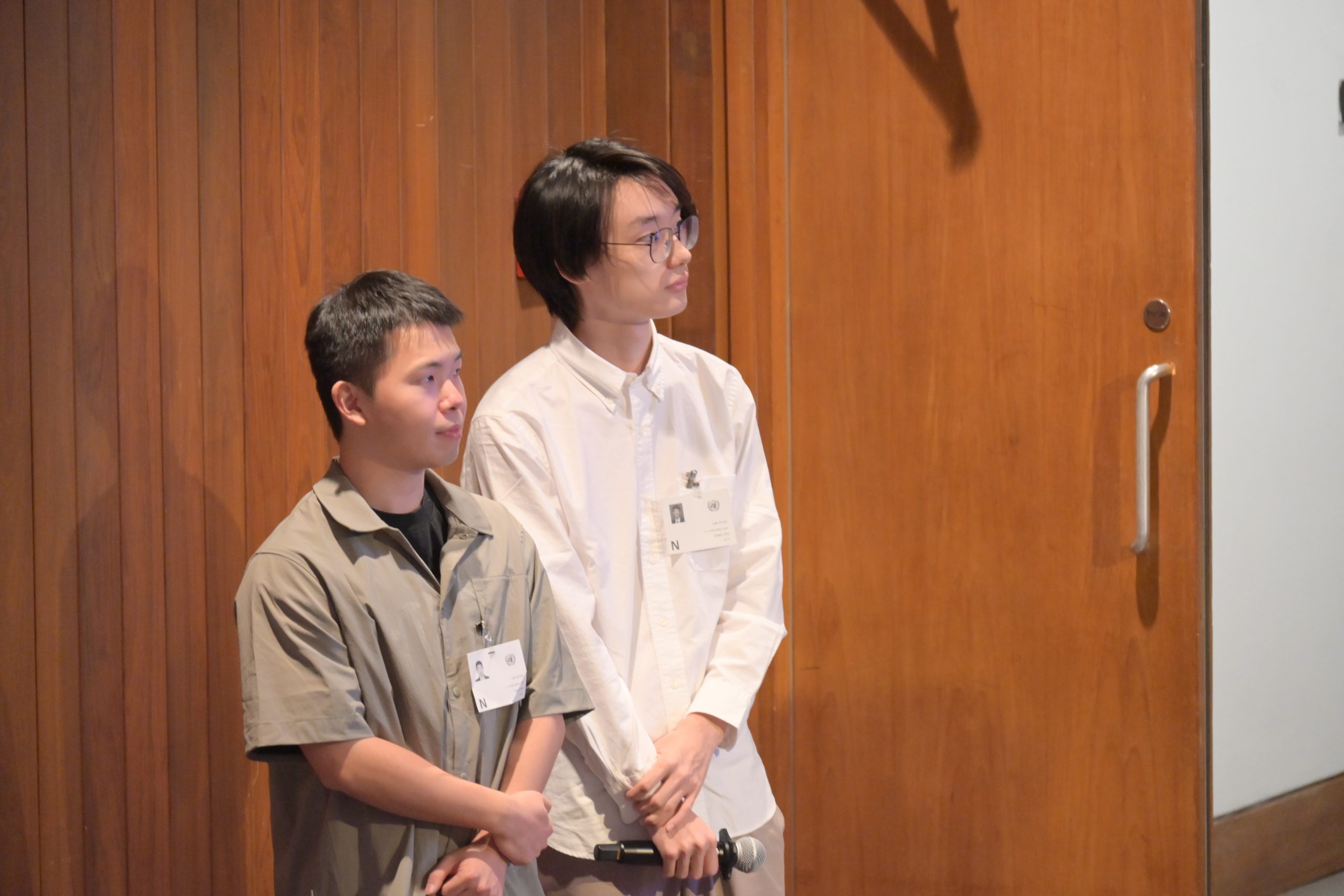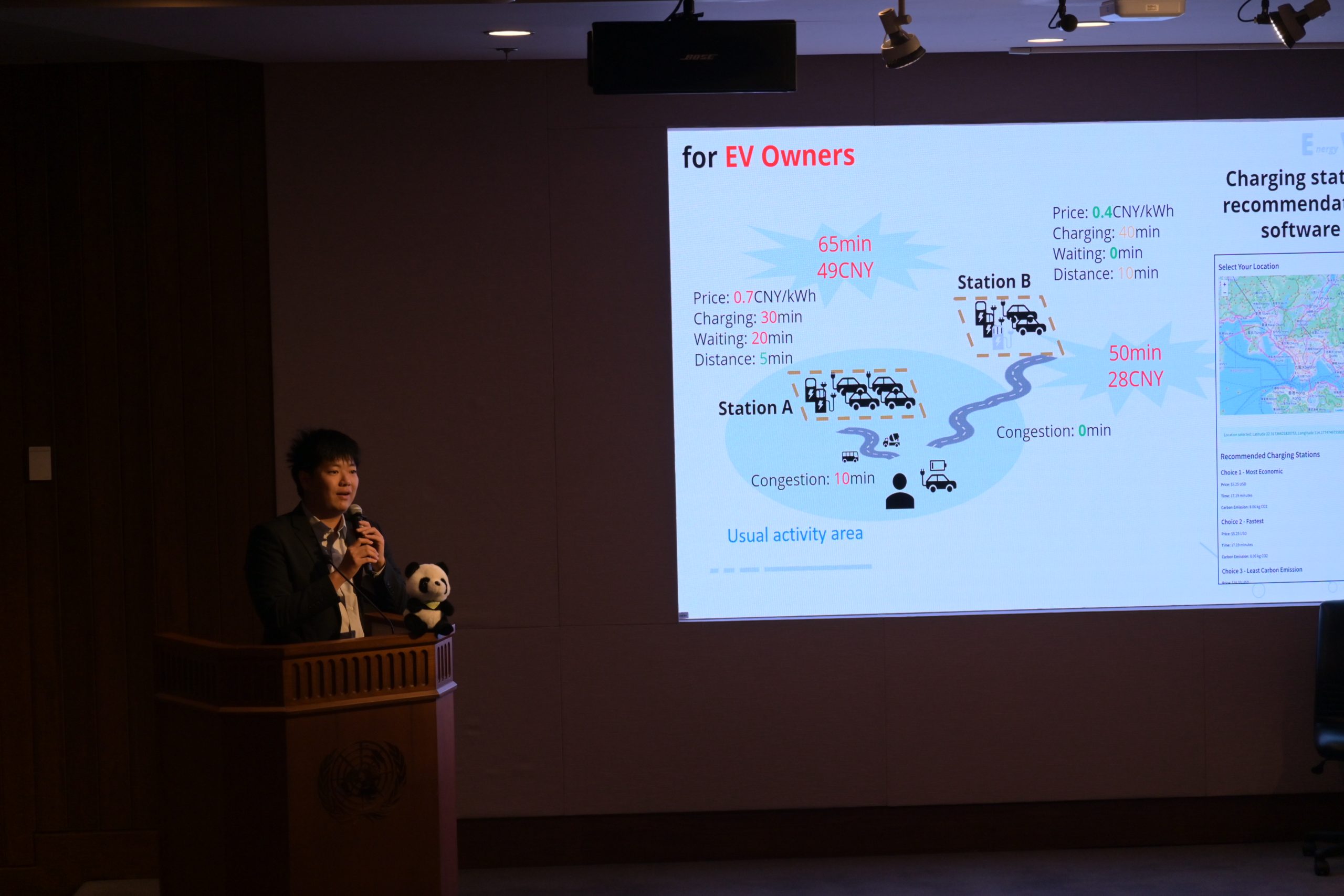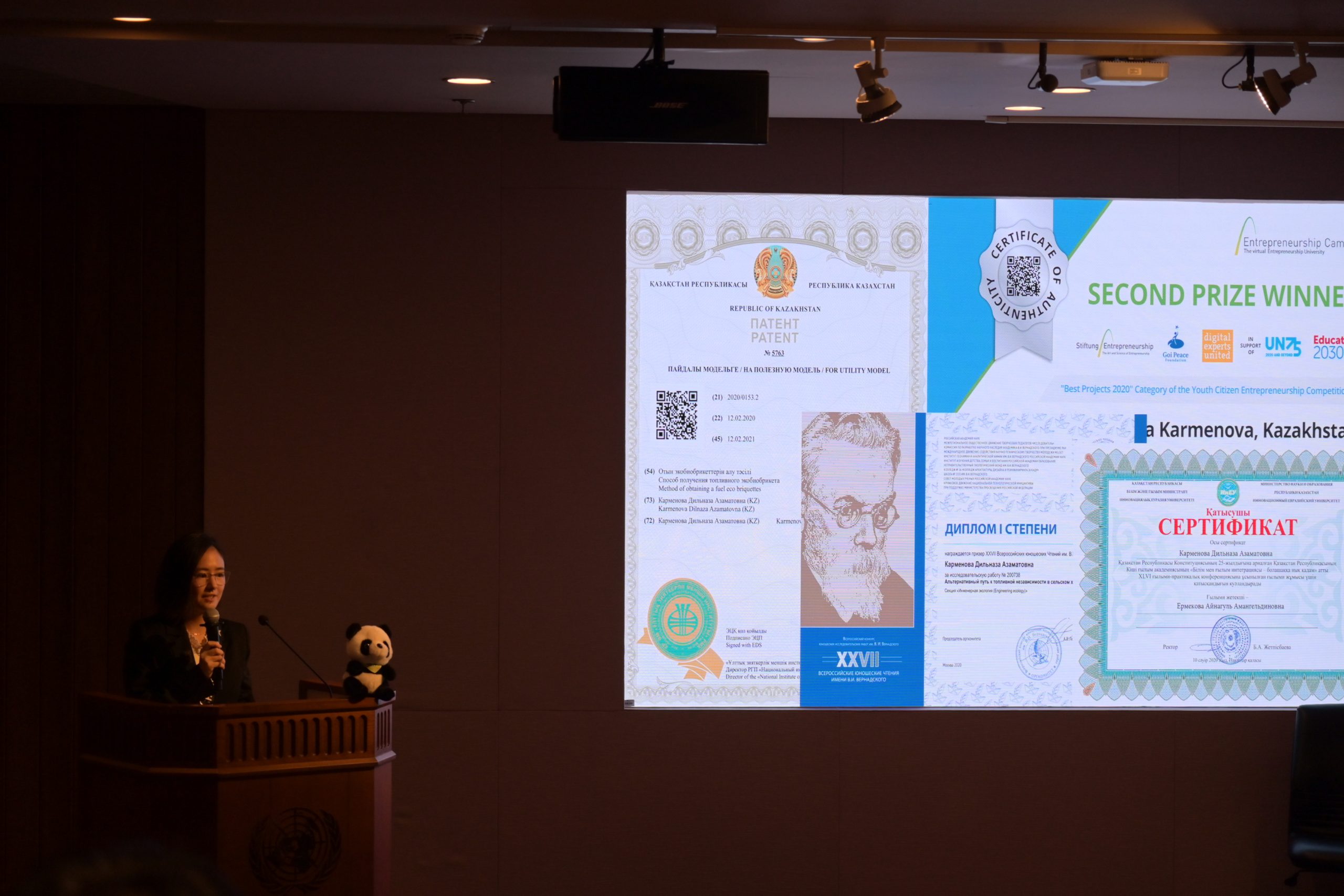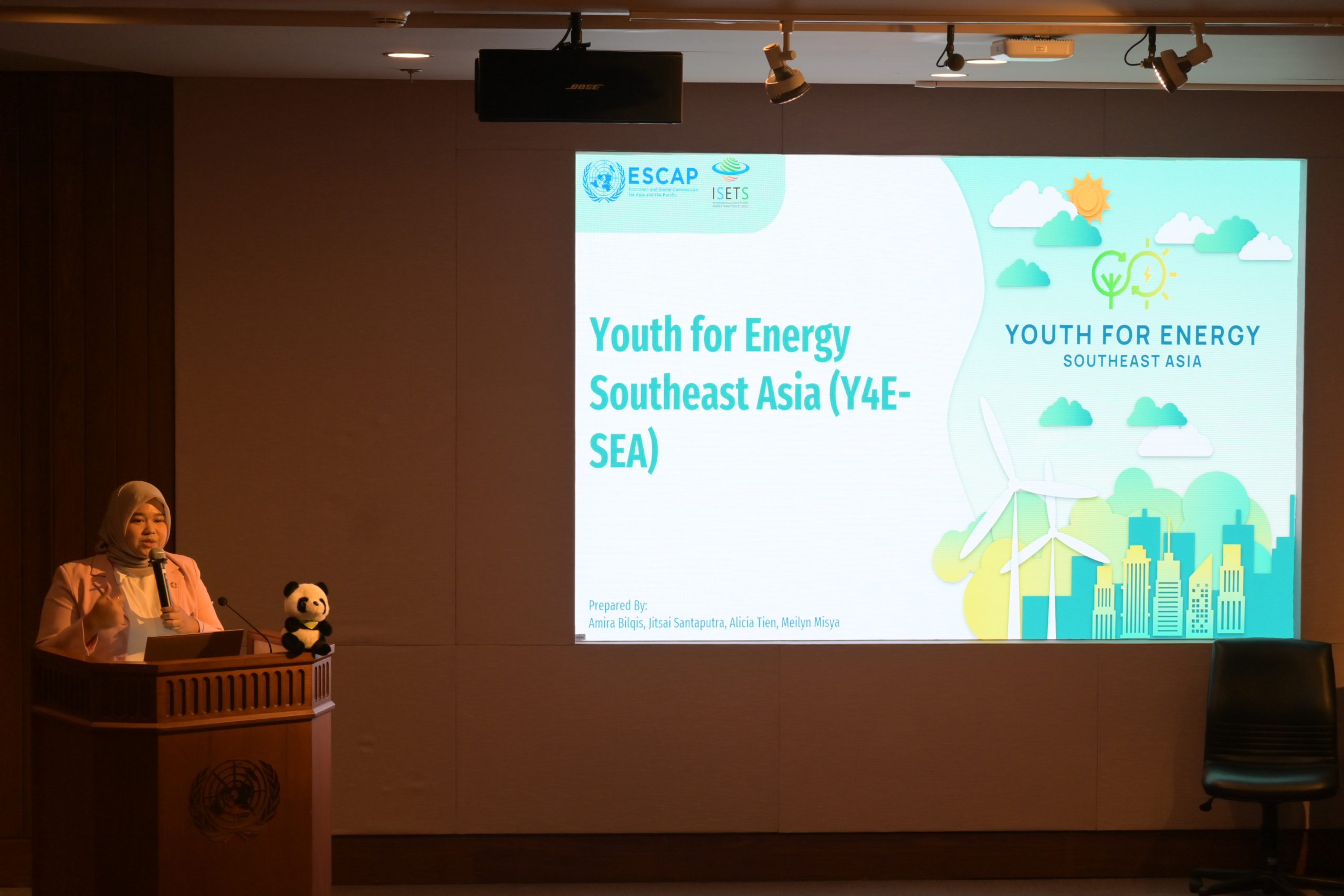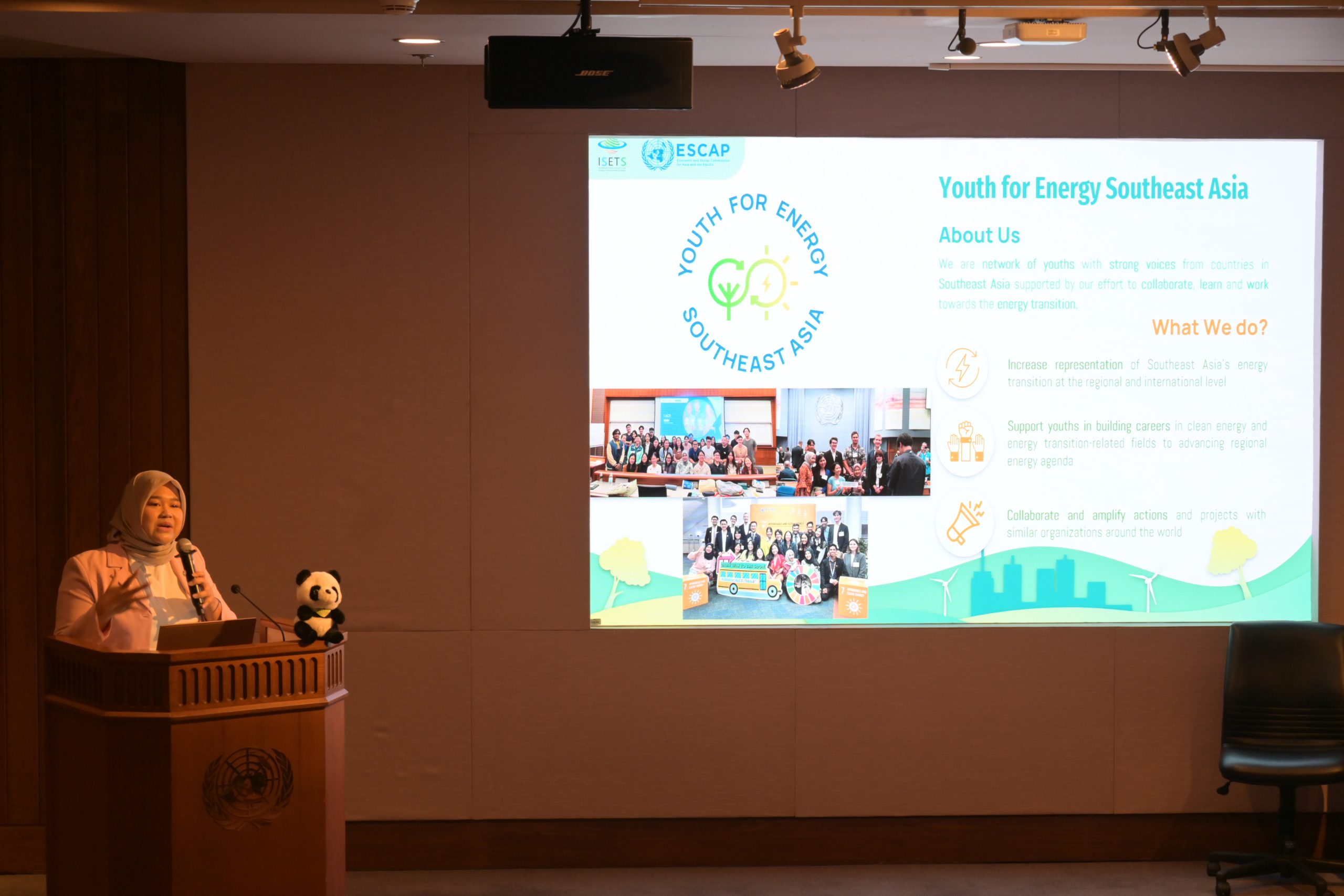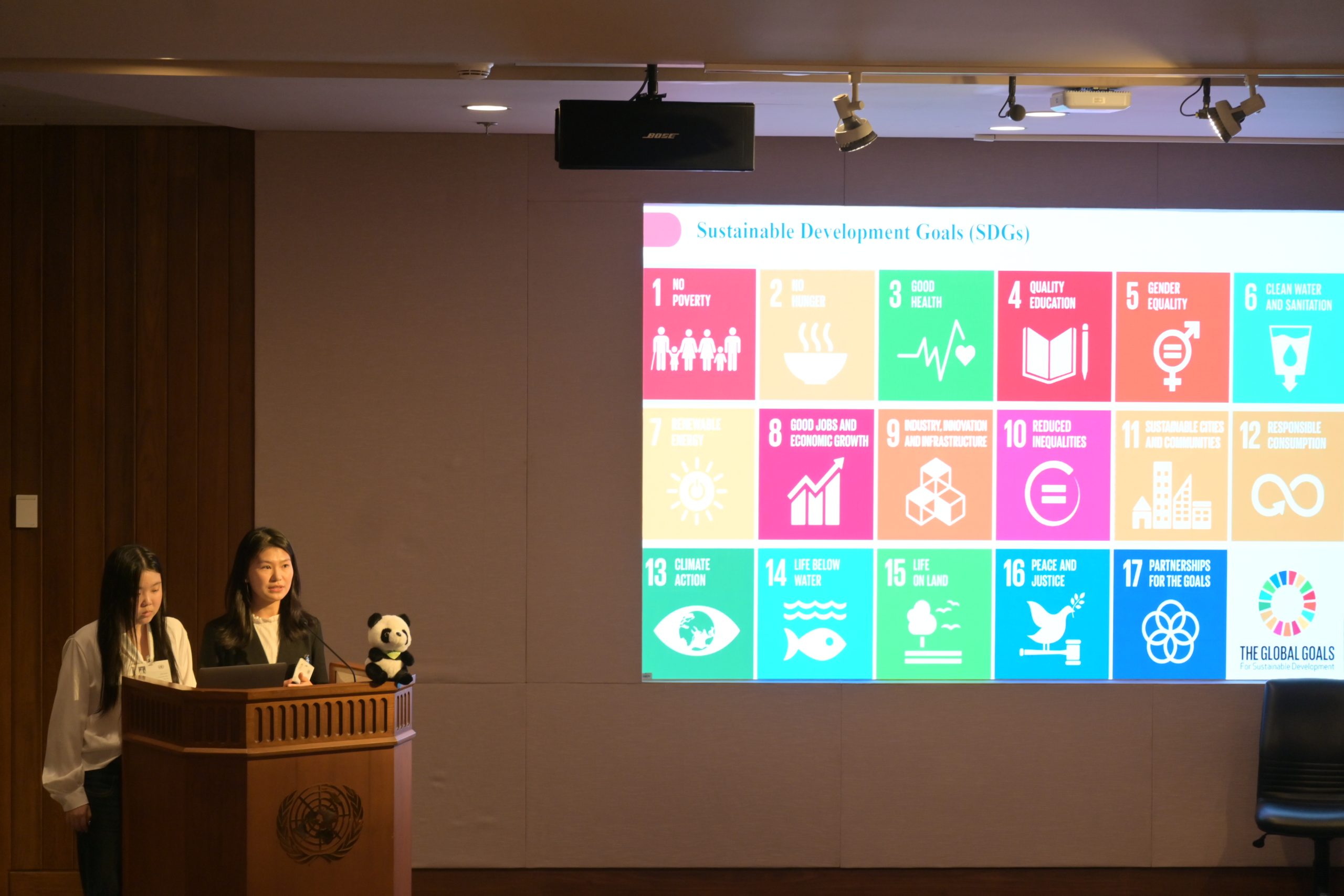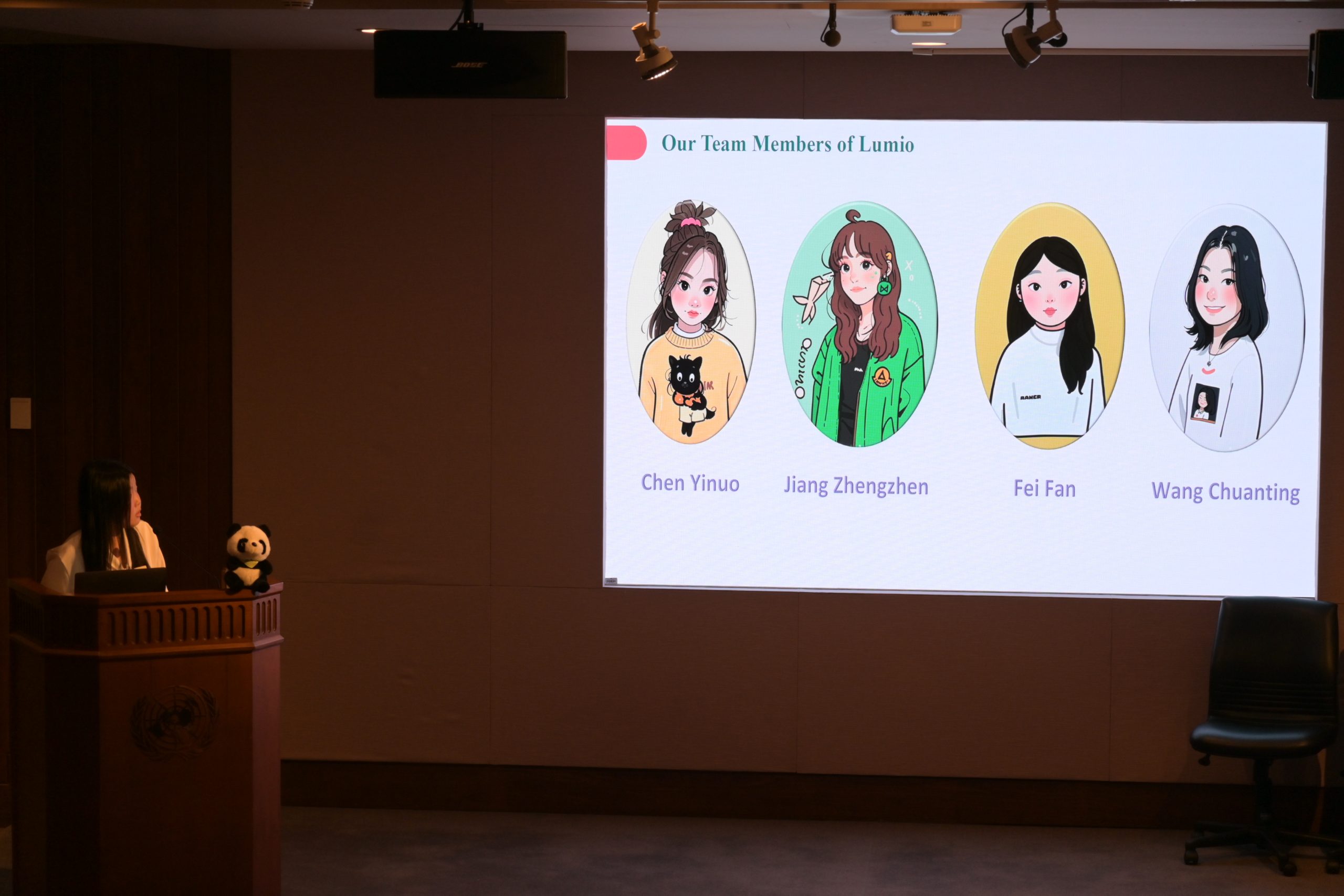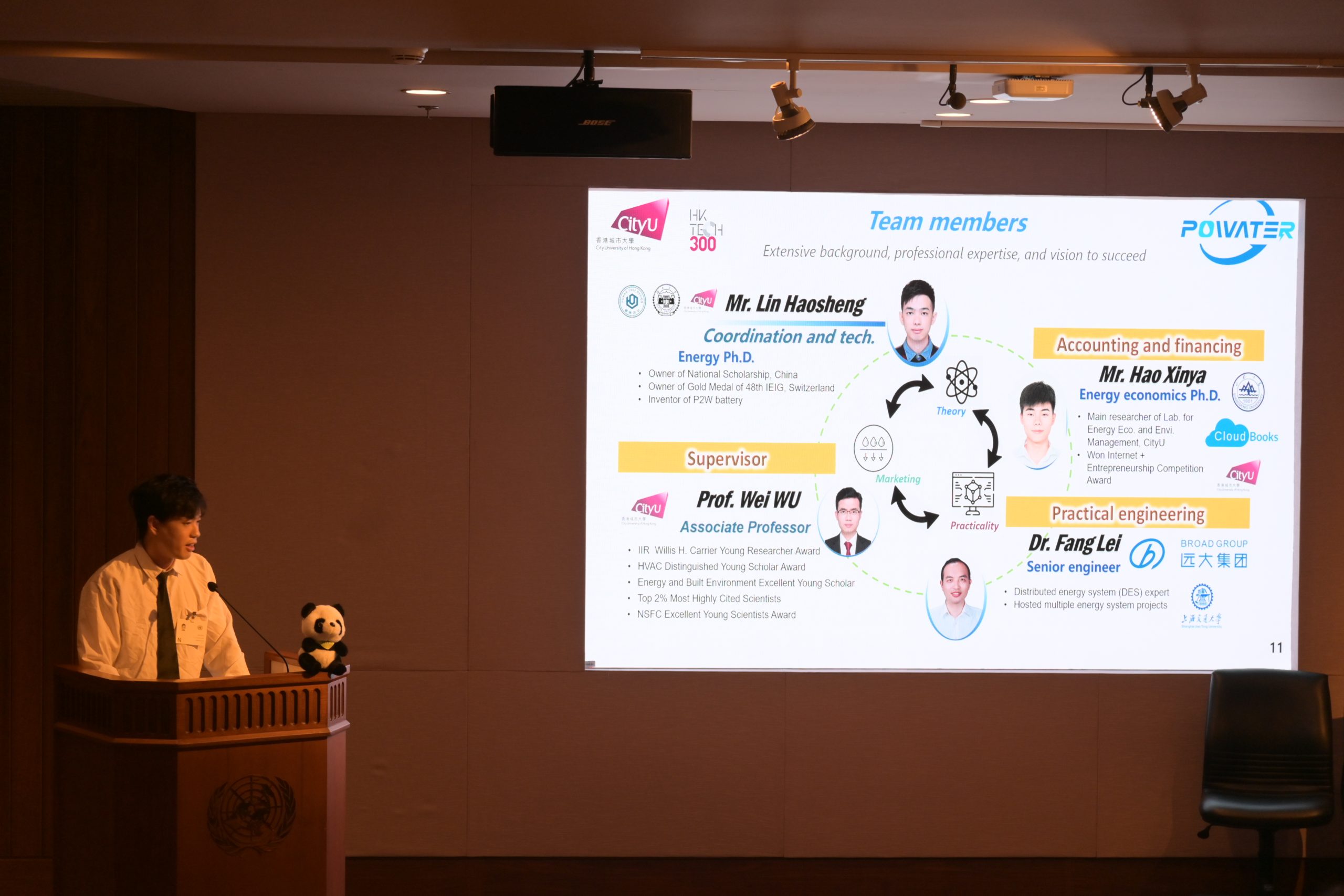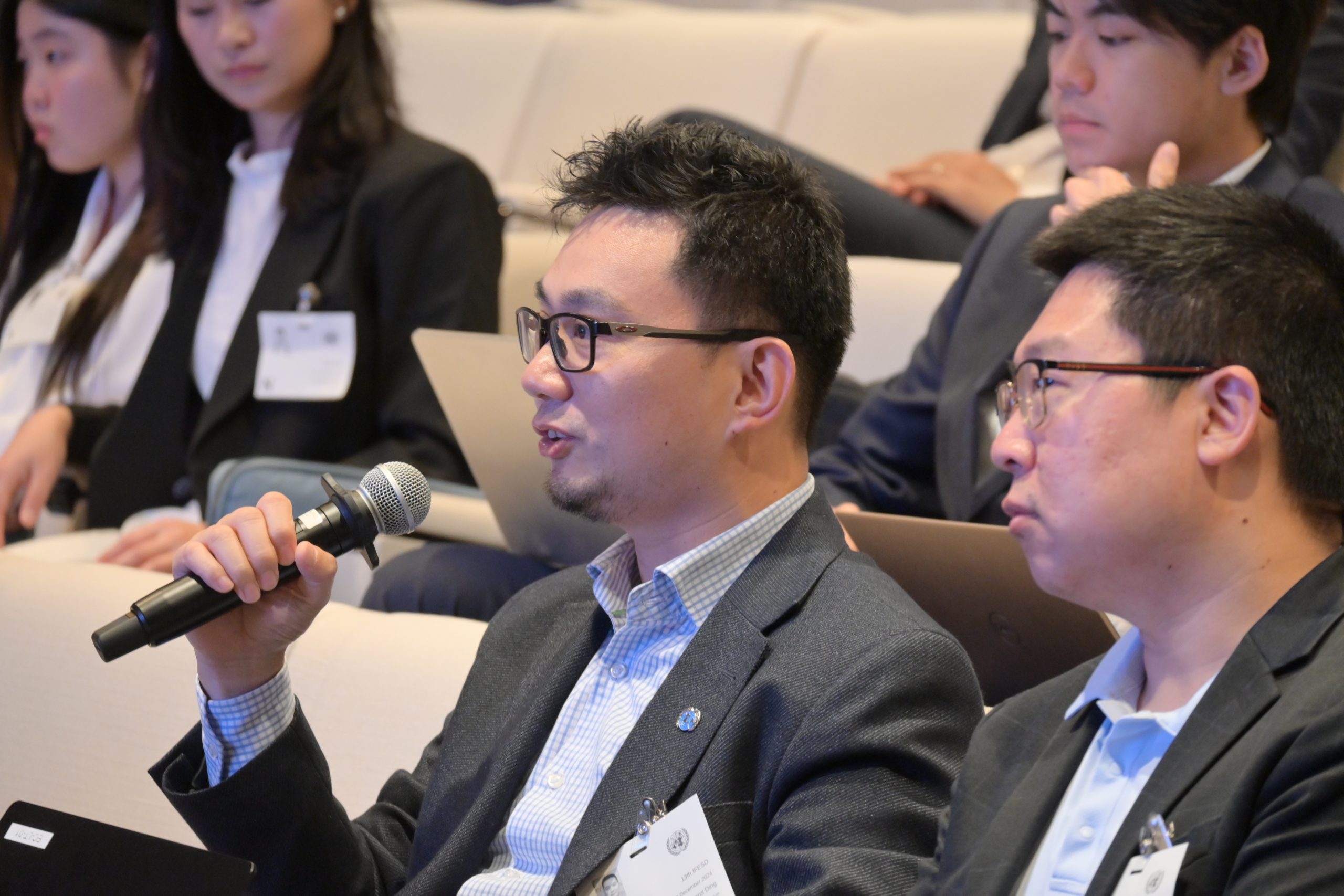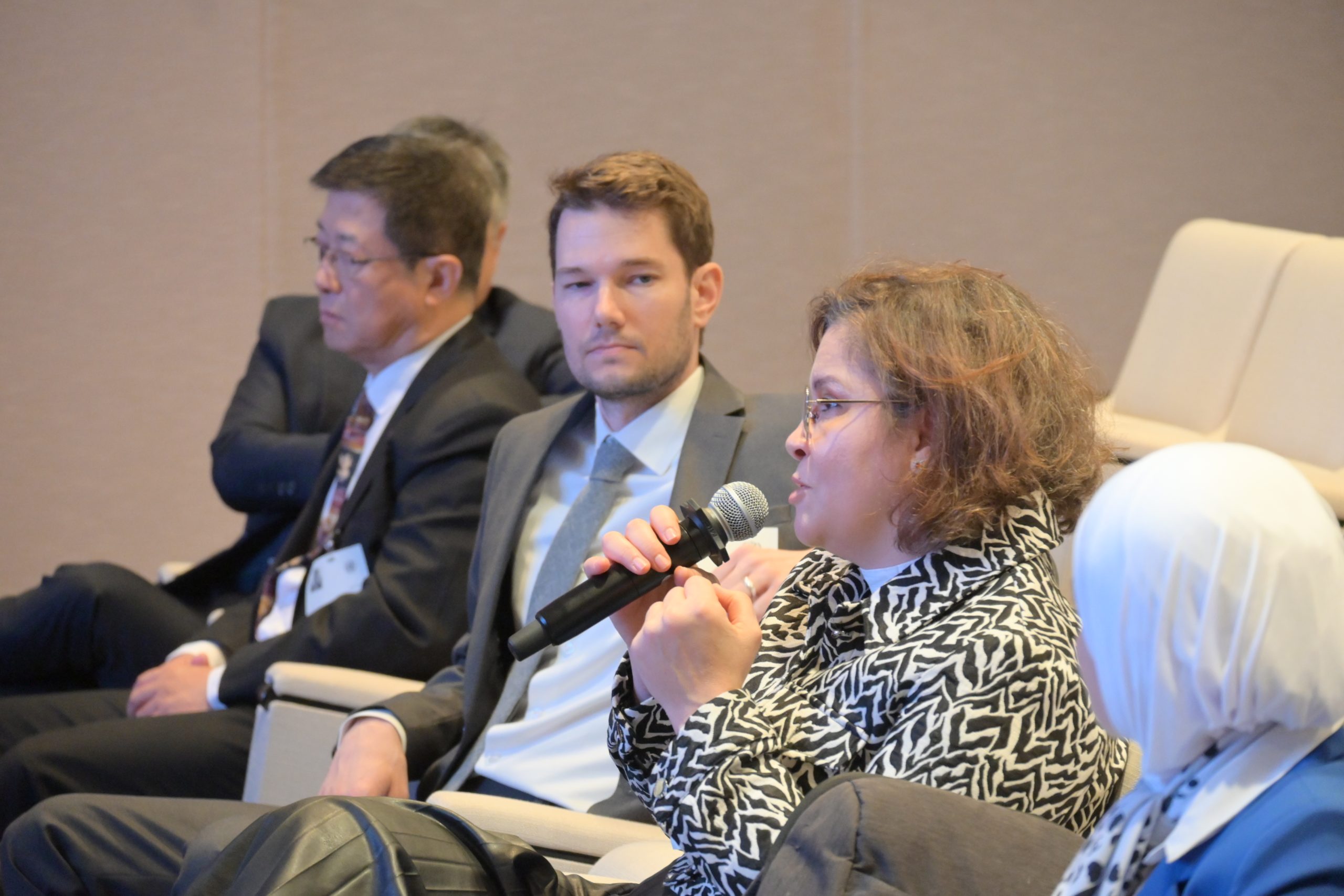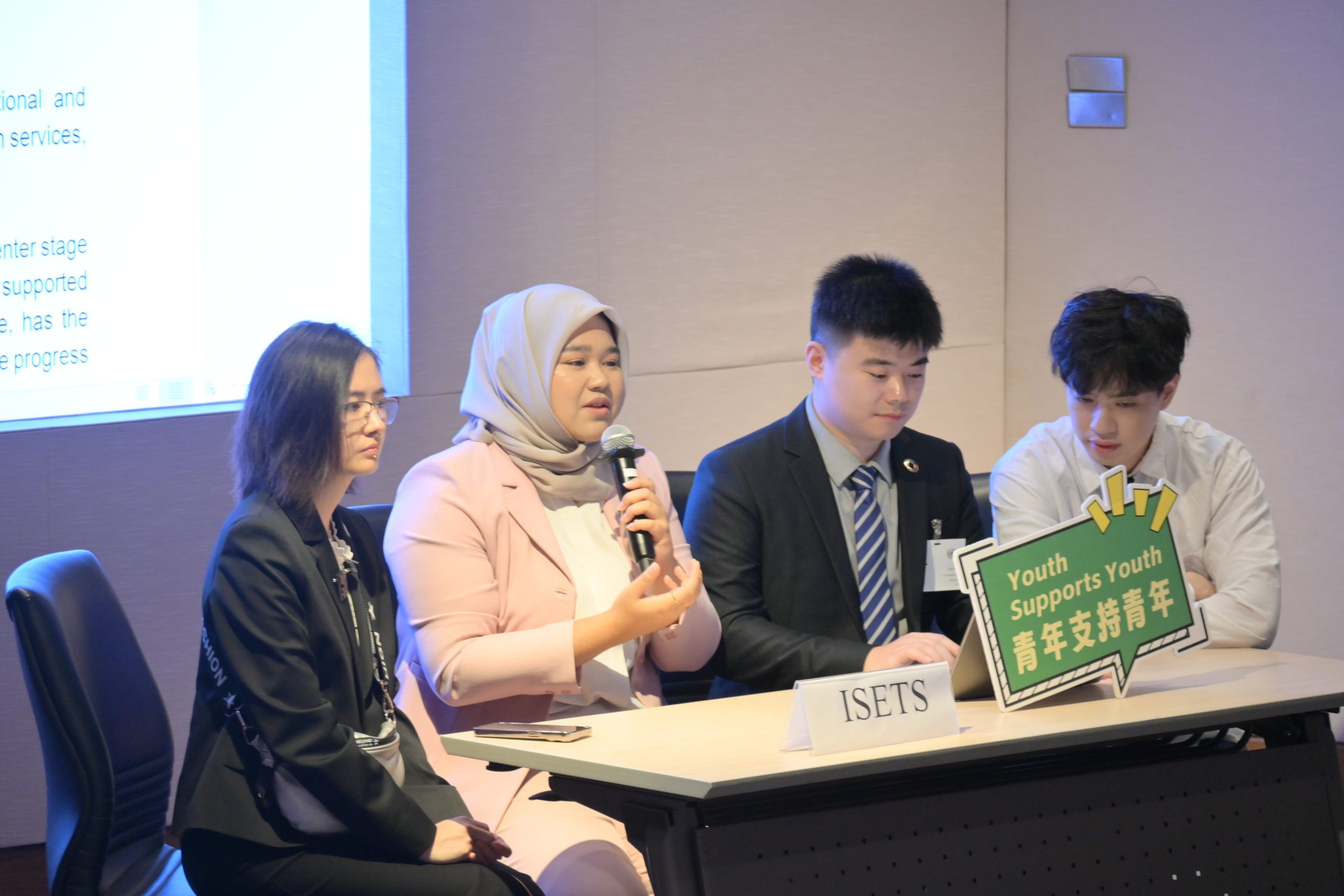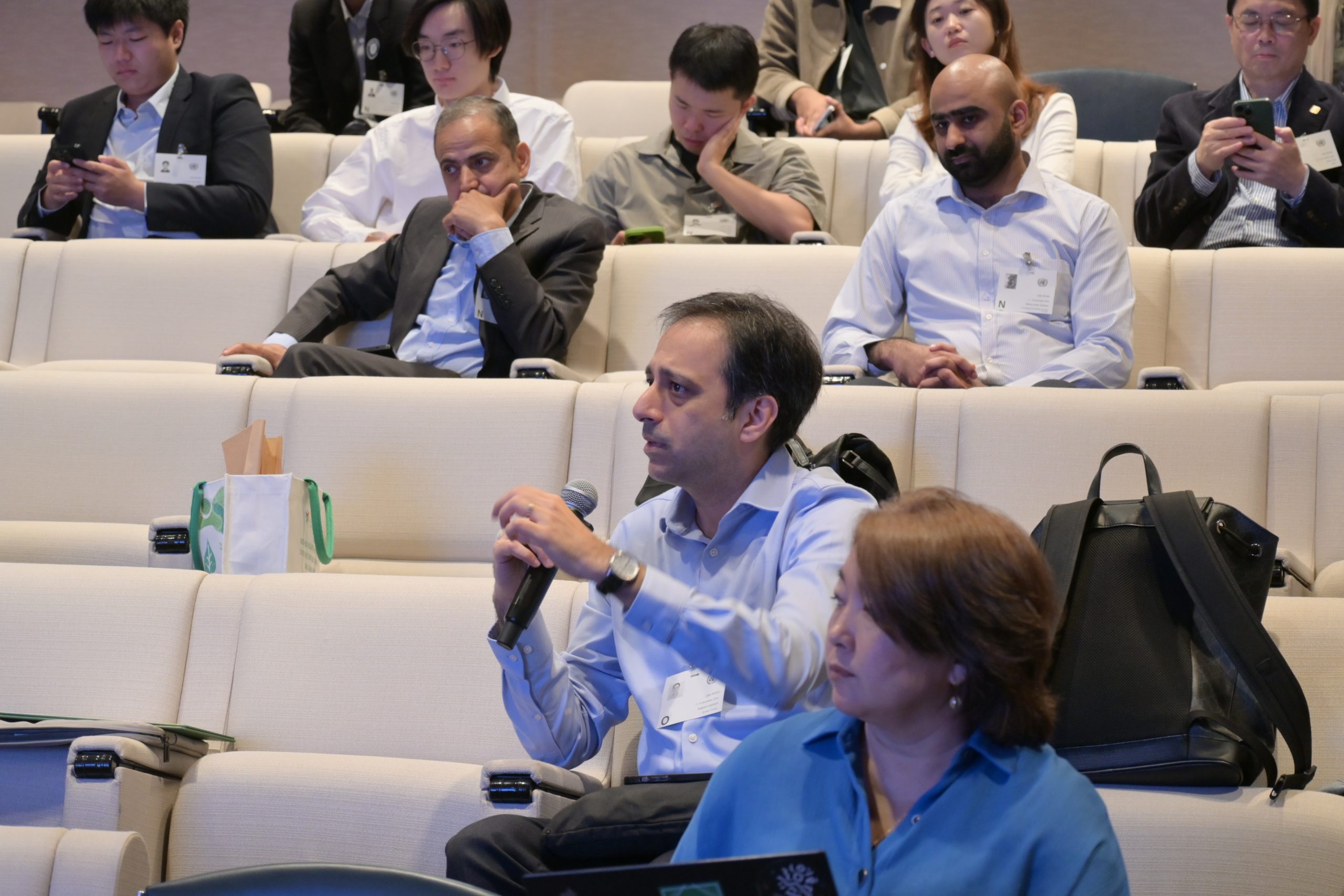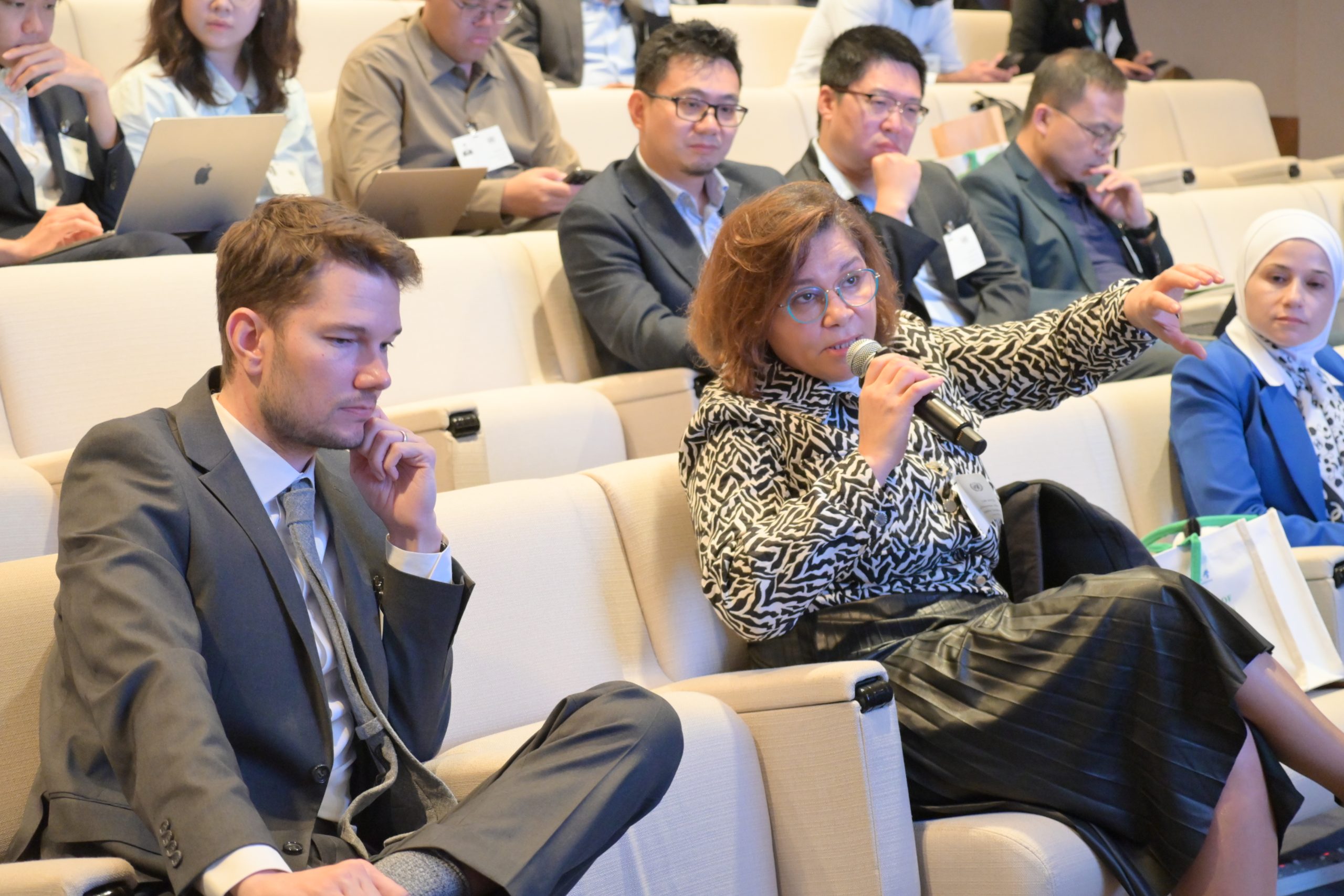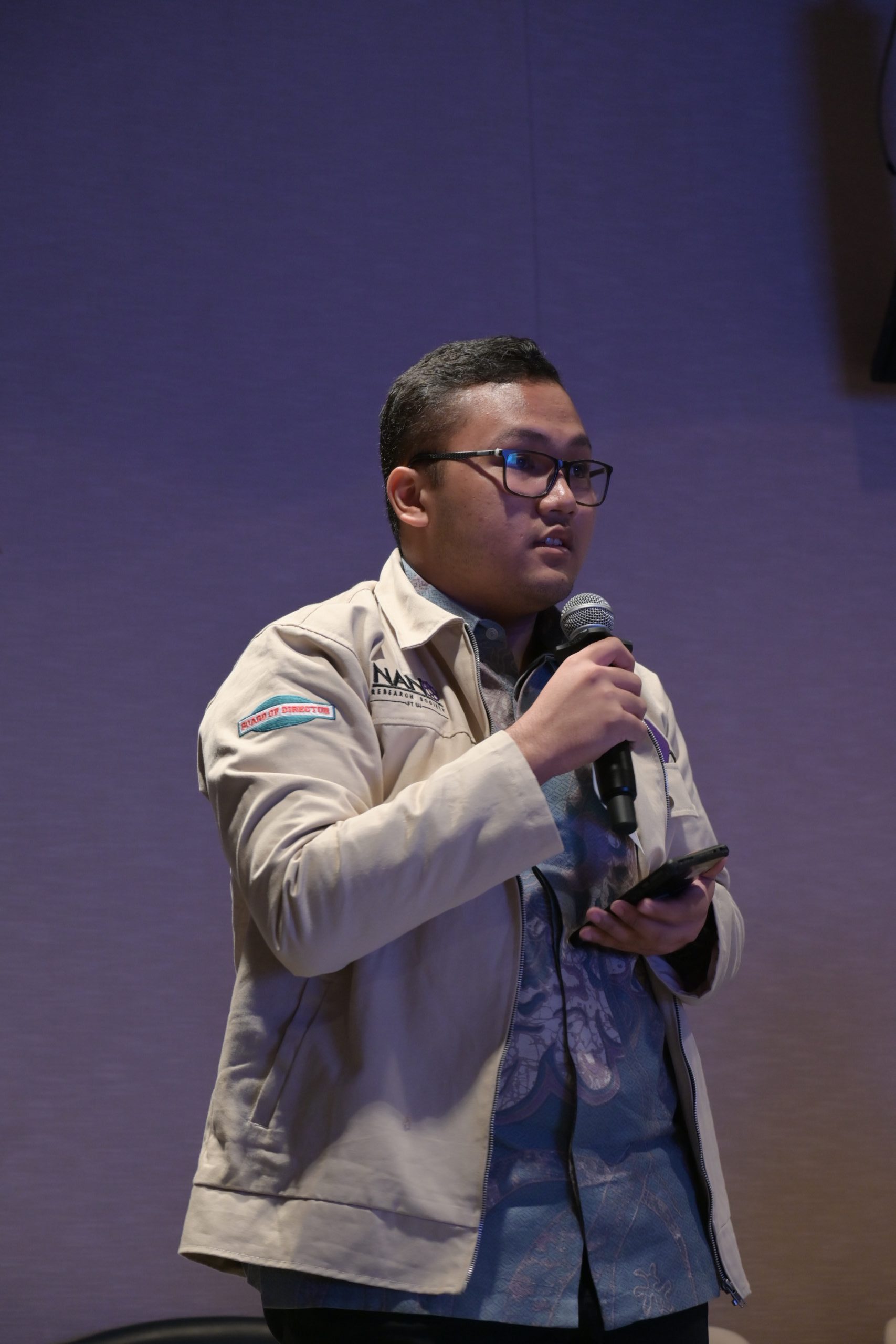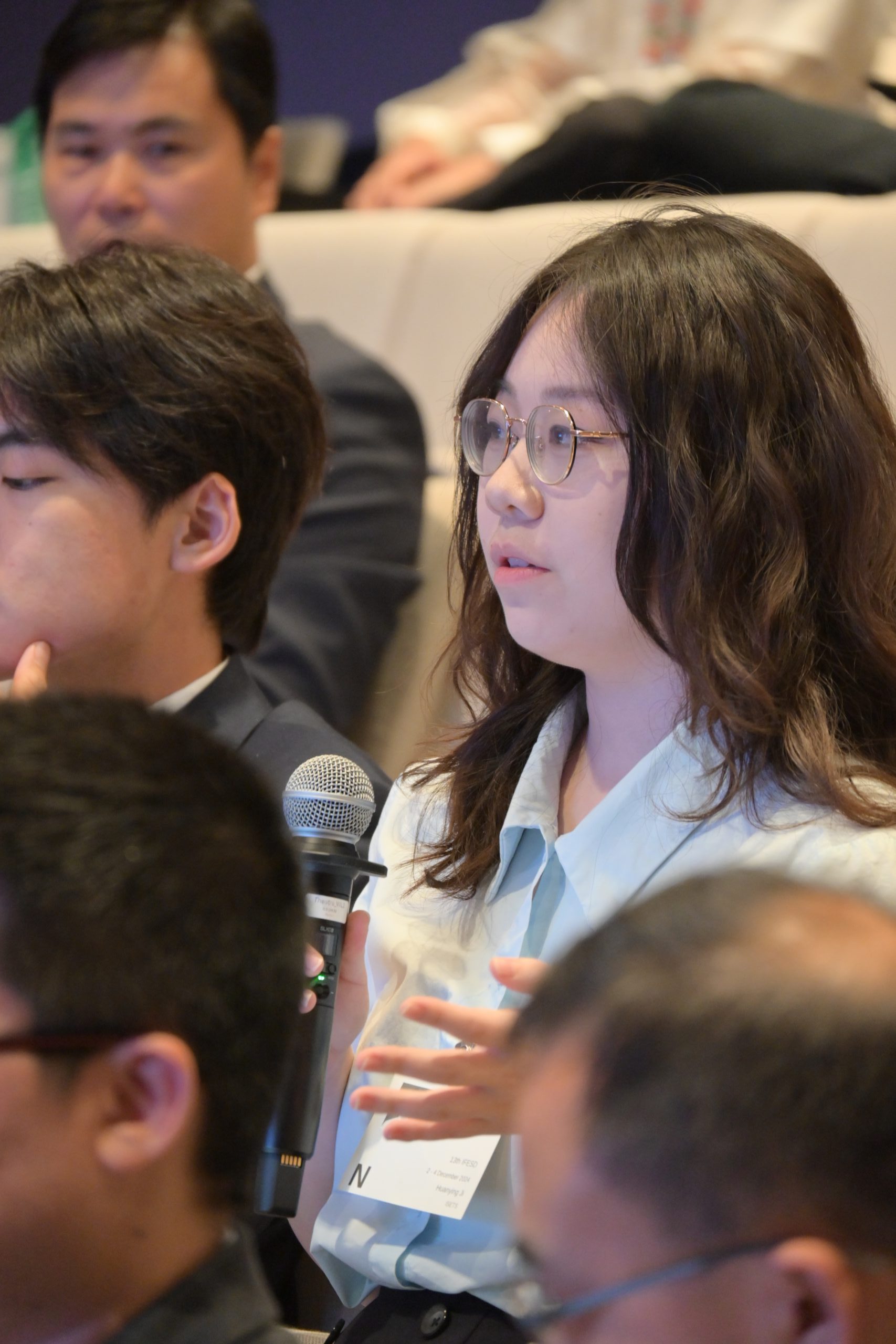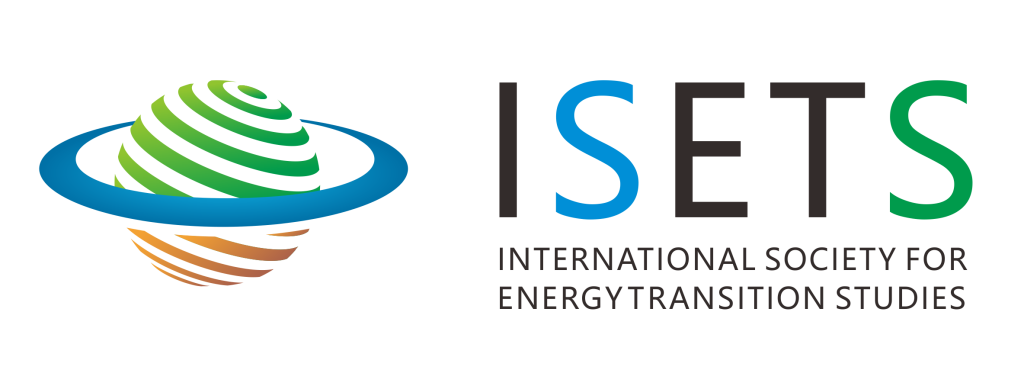

ISETS-ESCAP Global Competition of Youth Voice on Energy Transition & Youth Dialogue
Information and Participant Guidelines
Introduction
The International Society for Energy Transition Studies (ISETS), in partnership with the United Nations Economic and Social Commission for Asia and the Pacific (ESCAP), proudly announces the annual Youth Voice on Energy Transition Program. This initiative aligns with the UN Secretary-General’s commitment to engaging youth in discussions on critical global issues, including the transition to sustainable energy. Recognizing the significant potential for young individuals to serve as vital agents of change, the Program aims to harness their dynamism, creativity, and innovation to advance the global quest for a sustainable energy future.
The Program comprises two principal components: the Global Competition of Youth Voice on the Energy Transition (hereafter Youth Voice Competition) and the Youth Dialogue. The Youth Voice Competition invites youth worldwide to present their innovative ideas, technologies, products, projects, and solutions aimed at advancing the energy transition. Winners of the competition will be invited to participate in the Youth Dialogue at ESCAP headquarters, alongside energy-related meetings and events each year.
This arrangement provides a unique platform for youth to engage directly in discussions, observe official UN energy events, and enter into dialogues with officials and policymakers. Going beyond merely engaging young voices, this groundbreaking program seeks to empower them to become part of the global dialogue on energy transition.
The ISETS-ESCAP Global Competition of Youth Voice on the Energy Transition is structured around several core objectives: amplifying youth voices in support of energy transition and green development, fostering actions by young people from diverse backgrounds to engage in the just energy transition, encouraging creativity in the development of new technologies and solutions for energy transition, and facilitating collaboration across borders to combat climate change.
Submission Guide
- Inclusivity and Accessibility: Participation in the competition and dialogue is free, with efforts made to ensure diversity, inclusiveness, and broad representation.
- Language Requirement: All submissions must be in English to ensure uniformity and accessibility in this international competition.
- Entry Submission: Participating teams are required to submit their entries using the provided template, addressing each of the selection criteria outlined within it. They may also attach detailed information as needed. All materials must be consolidated into a single PDF file. Submissions that do not adhere to the provided template will be disqualified.
- Registration and Submission: To participate, the corresponding members must first register on the ISETS website and submit the entries through the ISETS website (www.isets.org).
- Video Presentations: For participants invited to submit videos, please ensure your video is in English and includes captions. Your video should contain complete content, a clear structure, and self-consistent logic. The submission guide will be announced in the invitation letter.
- Rights for Use and Publicity: By submitting entries for the competition, including written documents, videos, and other media, participants grant ISETS and other organizing bodies the right to non-commercial use and the publicity of the entries. [Included as a declaration in the Template]
- Content Guidelines: Entries must not contain pornography, violence, or engage in religious, racial, and regional discrimination. Submissions must comply with relevant laws and regulations. Originality is required, and plagiarism is strictly prohibited. Videos should not contain advertisements, watermarks, or logos. All entries must adhere to copyright laws and ensure no intellectual property disputes.
- Participant Information: When submitting entries in the first stage, all group members must accurately provide their dates of birth according to the template instructions. Groups will be disqualified from advancing and from prize eligibility if any participant is found not to meet the age requirements.
Types of Entries
The competition aims to harness the creativity, expertise, and passion of young people around the world to make a tangible difference in the quest for sustainable energy. It welcomes submissions that push the boundaries of traditional thinking and offer fresh, impactful approaches to accelerating the global energy transition. Submissions can include, but are not limited to the following types[1]:
- New Models or Frameworks: Innovative models or frameworks for energy systems, consumption, distribution, or policy that promote sustainability and efficiency. These could include circular economy models, decentralized energy systems, or novel regulatory and market mechanisms.
- Innovative Action Plans or Solutions: Comprehensive strategies or action plans aimed at facilitating the energy transition at local, regional, national, or global levels. These could address specific challenges such as financing renewable energy projects, increasing public awareness and participation, or overcoming technical barriers to energy access.
- New Products: Technological innovations, product designs or business models that contribute to renewable energy generation, energy storage, energy efficiency, or reduction in energy consumption. Examples could range from solar panels, wind turbines, and battery technologies to energy-efficient appliances and smart grid solutions.
- Technology Applications and Software Solutions: Software, apps, or platforms that support energy transition goals. This could include blockchain for energy trading, AI for optimizing energy consumption, or digital platforms for promoting community-based renewable energy initiatives.
- Educational and Awareness Campaigns: Creative and impactful campaigns or programs designed to raise awareness about the importance of the energy transition and how individuals and communities can contribute. These could leverage various media, including social media, to reach a wide audience.
- Research Studies and Analyses: Data-driven research that provides new insights into the energy transition, including market analyses, policy impact studies, or technological feasibility studies. Submissions could highlight key trends, barriers, and opportunities within the energy transition space.
- Pilot Projects or Case Studies: Documentation and analysis of pilot projects that have been implemented and can serve as a model or inspiration for similar initiatives. These could showcase successful integration of renewable energy sources into existing grids, community-led energy projects, or innovative business models in the energy sector.
- Artistic and Creative Expressions: Projects that use art or creative media to explore and communicate themes related to energy transition, such as installations, performances, or visual art that raise awareness or envision the future of energy.
Participant Eligibility and Team Composition (18-30)
The Competition invites young thinkers and doers from UN Member States to contribute their ideas towards accelerating the global energy transition. It is open to youth aged 18-30, with dates of birth ranging from January 1, 1994, to December 31, 2006, for the 2024 competition year.
- Individuals or Small Groups: Participants can enter the competition as individuals or in small groups, with a maximum group size of four (4) people.
- Supervisor/Mentor Involvement: Teams may nominate a supervisor or mentor who has offered substantial guidance and support throughout the competition process. It’s important to note that mentors are NOT classified as a team member; therefore, they are not subject to age restrictions.
Selection Criteria
To ensure a comprehensive and impactful contribution to the energy transition, the ISETS-ESCAP Youth Voice on Energy Transition Program has established a detailed set of assessment criteria. These criteria are designed to evaluate the potential of each submission to make a meaningful difference in the global effort toward sustainable energy systems.
The initial submission to the Competition must include an address to the selection criteria (A template will be provided). A detailed document to support the submission is highly recommended:
Screening criteria (Entries that fail to meet any criteria will not be further assessed):
Team Qualification: The teams affirm that all members are within the specified age range and hail from UN Member States.
Impact and Relevance to Energy Transition: Entries must directly address a specific challenge or opportunity within the energy transition including critical mineral development that is essential for the energy transition, demonstrating a clear and thorough understanding of the issue at hand. Submissions should articulate how their proposed solution or innovation has the potential to contribute positively to the energy transition.
Technical criteria (Submissions NEED to address these criteria)
- Innovation (20 Points): Solutions should showcase originality in approach, methodology, or technology. The assessment will consider how the entry introduces new concepts, ideas, or innovations that stand out from existing solutions.
- Versatility (20 Points): Show versatility for adaptation and describe implementation potential in different scale and different region.
- Sustainability (20 Points): Demonstrate the long-term viability of the solution in terms of environmental, economic, and social factors.
- Impact (20 Points): The expected impact of the solution on the energy transition should be significant and measurable. Entries should provide evidence or projections of how their solution can contribute to reducing carbon emissions, increasing energy efficiency, promoting renewable energy, and addressing environmental and social impacts, among other impact metrics.
- Representativeness (5 Points): Reflects a commitment to diversity and equity within the team composition, including but not limited to: Gender balance; Inclusion of underrepresented groups in terms of ethnicity, disability, and socio-economic background is also encouraged.
For those are further invited to submit videos or make presentations, the clarity of the presentation will be further assessed.
- Communication (15 Points): The clarity, coherence, and persuasiveness of the presentation of the idea, including how effectively it communicates its value proposition and engages the audience. The shortlist will be based on the total scores out of 100.
These criteria are designed to identify and reward entries that are not only innovative and impactful but also practical and adaptable, reflecting the complexities and scale of the challenge posed by the global energy transition.
Regional Division and Awards System
To ensure a fair and inclusive event, the organizers have established a regional division system and awards criteria based on participation levels.
Division Arrangements
National Divisions: When the number of participants from a single country exceeds 50, a separate competition division may be established for them. This approach allows us to manage the competition more effectively and ensure participants compete in a more comparable and fairer environment.
Global Open Division: This division serves as a vibrant and inclusive arena for participants who do not fall within the specific national divisions.
Others: The organizing committee reserves the right to determine divisions as needed.
Awards System
- Allocation of Awards: Within each division, awards will be allocated based on the effective number of participants. The First, Second, and Third Prizes will account for approximately 20% of the total number of participants.
- Awards Distribution for the Divisions [To be determined]:
Awards will be distributed in each division as follows:
- First Prize: Awarded to the top performers, constituting 5% of the total participants in each division. First Prize winners will be invited to participate in the final stage (global competition)
- Second Prize: Awarded to the next tier of performers, comprising the following 5% of total participants.
- Third Prize: Awarded to the subsequent tier, constituting the next 10% of participants.
The ISETS-ESCAP Youth Dialogue at the Bangkok UN Regional Headquarters
Top of Form
At least one representative from each division’s First Prize-winning team, along with other selected representatives who reflect diversity, will be invited to the United Nations regional Headquarters in Bangkok for the Youth Dialogue. Here, they will also have the opportunity to observe associated United Nations events. This provides a platform to further amplify their voices and ideas on a global stage.
In the 2024 competition year, the Youth Dialogue is scheduled to take place at the International Forum on Energy for Sustainable Development 2024 (IFESD 2024) in Bangkok, Thailand, from December 2 to December 4, 2024.
Participants in the Dialogue may apply for travel grants to support their transportation and accommodation needs, if necessary. Such requests must be submitted on a case-by-case basis.
Selection process
Division management
- Registration and Division Allocation: Once the deadline has passed, participants will be allocated to their respective divisions based on their country or region and the overall number of entrants from these areas.
- Competition: Participants will compete within their divisions, with performances or submissions judged according to the prescribed criteria.
- Judging: The Competition Organizing Committee will appoint a division selection committee to manage the logistics and execution of local competitions to identify division winners. Furthermore, each entry must be reviewed and scored by at least three experts. In instances of significant score discrepancies, the Chair will mediate and make a final decision.
Division Selection Process (Tentatively)
The competition progresses through three pivotal stages: Preliminary, Semi-final, and Final. These stages are designed to rigorously evaluate and showcase the best ideas and solutions from young innovators worldwide.
- Preliminary Assessment (Long List): The division selection committee will evaluate the initial submissions, advancing the top 30% of teams (from a total score of 85) from each division to the next stage.
- Multiple Media Presentation: Teams that have passed the Preliminary stage are invited to submit a multi-media presentation (including video, animation, etc.) of up to 4 minutes, further elaborating on their initial submissions.
- Second Assessment (Short List): The division selection committee will shortlist 20% of the total participating teams in each division based on the multiple media presentations (from a total score of 100).
- Division Finalist Live Presentations: The top 20% of participating teams are invited for a live presentation. The division selection committee will determine the division’s First, Second, and Third Prize winners.
Final Stage (Global Competition)
- Online Presentations: Winners of the First Prize from each division are invited to deliver a comprehensive online presentation.
- Global Judging: The global selection committee will assess these presentations to determine the Global First, Second, and Third Prize winners of the competition.
- All participants in the final stage (global competition) will be categorized as either first, second, or third-place winners.
Schedule for the 2024 Competition
- 30 April: Registration opens for the ISETS-ESCAP Youth Voice Competition.
- 31 July 11:59 PM (UTC+0): Extended deadline for the preliminary
- 15 September: Announcement of the division semi-finalists and information for video submission.
- 30 September: Deadline for video submissions.
- 15 October: Announcement of the shortlist for semi-final presentations.
- 31 October: Announcement of division results.
- 29 November: Global competition presentations (To be confirmed).
- 2-4 December: Participation in the ISETS-ESCAP Youth Dialogue during the 13th International Forum on Energy for Sustainable Development 2024 in Bangkok, Thailand.
Note: The cutoff time for each date listed above is 24:00 (GMT+0).
Should you have any questions, please don’t hesitate to contact us at youthvoice_isets@163.com .
Commercialization Opportunities
Entries with potential for commercialization may be assessed by potential investors, who will contact the teams for further discussion. Potential investors may also be invited to join the selection committee. We encourage interested investors to collaborate with the organizing committee. Those interested can express their intentions by contacting: isets@isets.org.
Call for Partners
We are seeking partners to ensure a successful event. Partners will be recognized throughout the Youth Voice Competition and will have opportunities to interact with the teams and present at the Youth Voice Dialogue, to be held at the UN Bangkok Headquarters. Organizations interested in sponsoring the event can contact isets@isets.org.
[1] The term ” types” does not imply separate categories. Entries of various types will be assessed together.


ISETS-ESCAP Global Competition of Youth Voice on Energy Transition
Submission Template
Submission Title
|
|
Participant Information
|
Team Name |
|
|
Names of Team Members |
|
|
Age Range of Team Members |
|
|
Countries of Residence |
|
|
Contact Email |
|
|
Supervisor/Mentor Name (if applicable) |
|
Declaration
|
1. Team Qualification: By signing below, we, the undersigned, hereby confirm that all individuals listed as part of our team fall within the specified age range and are legal residents or nationals of United Nations Member States. We understand that providing false or misleading information may result in our disqualification from the ISETS-ESCAP Global Competition of Youth Voice on Energy Transition. 2. Rights for Use and Publicity Consent: By submitting entries for the competition, including written documents, videos, and other media, we, the undersigned, grant ISETS and other organizing bodies the right to non-commercial use and the publicity of the entries. We understand and agree that our submission may be used for the purposes of promotion, education, and dissemination of knowledge related to the energy transition without any form of compensation. Team Member Signature:
|
Submission Checklist [Incomplete submissions will not be assessed]:
- Team Information Completed
- Abstract Provided
- Screening Criteria Addressed
- Technical Criteria Addressed
- Detailed Document to support your submission, if available
- Rights for Use and Publicity Consent Signed
Submission Title
|
|
Abstract: (150 words limit) Provide a concise summary of your submission, including its core objectives and potential impact on the energy transition.
|
|
Addressing the Screening Criteria
Impact and Relevance to Energy Transition: (300 words limit) Describe the specific challenge or opportunity within the energy transition that your entry addresses and how your proposed solution or innovation can contribute positively.
|
|
Addressing the Technical Criteria
- Innovation (20 Points): (300 words limit) Detail the originality of your solution, highlighting new concepts or innovations.
|
|
- Versatility (20 Points): (300 words limit) Show versatility for adaptation and describe implementation potential in different scale and different region.
|
|
- Sustainability (20 Points): (300 words limit) Demonstrate the long-term viability of the solution in terms of environmental, economic, and social factors.
|
|
- Impact (20 Points): (400 words limit) Provide evidence or projections of your solution’s real-world impact on the energy transition.
|
|
- Representativeness (5 Points): (200 words limit) Describe your team’s commitment to diversity and equity.
|
|
Click here to download the full template:2024 Youth voice-Submission template
Submissions [Please use the template]
GUIDE for participants who attend the competition.
Step 1: Click on “LOGIN/REGISTER” on this conference website.

Step 2: Log in to your member portal. If you are new, you need to register. If you forget your password, please reset it. Your username is the one you chose during registration. You can also use your email address as your username.

Step 3: Click on the “Personal Account” section in the upper right corner of the webpage. (If this is your first time registering, your personal name will be displayed as “[Empty Empty]” instead of your “[First name Given name]”. You only need to click on “ACCOUNT” in the “Personal Account” section to modify it.) Then, click on “My Events” to submit your paper and register for attendance. In “My Events,” select “ISETS-ESCAP Youth Voice Competition 2024” under “AVAILABLE EVENTS” and click on “Register Now.”


Step 4: You need to refresh the webpage and click on “CURRENT EVENTS” in the “MY EVENTS” section. You will then find an additional event titled “ISETS-ESCAP Youth Voice Competition 2024“. If this event title does not appear, please refresh the webpage again until it does. Then, click on the blue button labeled “ADD SUBMISSION.”

Follow the instructions to fill in the submission information. Please ensure that your submitted abstract adheres to the requirements outlined in the template file. If the download link for the Abstract Template does not appear, you can either refresh the webpage or click here to download it. Once you have filled in all the submission information, click “SAVE” to complete the process.

After completing the submission information, the submission information in the “CURRENT EVENTS” section of your “MY EVENTS” column will be updated as shown in the figure below. The “SUBMISSION STATUS” will change to a gray “To be determined” button. At this point, the ISETS conference committee will review your submission and decide whether to accept or reject it.

Step 5: After received an accepted email from ISETS2024 office. Your “SUBMISSION STATUS” will update to green “Approved”.
Please feel free to contact us when you meet any problems.
Email: isets2024@hotmail.com
isets@isets.org


Announcement: Division Finalists for the 2024 Competition
September 14, 2024
The preliminary round of the 2024 ISETS-ESCAP Youth Voice Competition has been successfully completed! This year, we received submissions from approximately 300 participants across 77 teams, representing 37 countries. To ensure balanced regional representation, participants were divided into five divisions: Northeast Asia, Southeast Asia, South Asia, Africa, and Mixed Regions and Others.
Following the preliminary round, the top 30% of teams from each division advanced, resulting in 24 shortlisted teams.
Divisions |
Participating Teams |
Shortlisted Teams |
|
Northeast Asia |
32 |
10 |
|
Southeast Asia |
14 |
4 |
|
South Asia |
8 |
3 |
|
Africa |
13 |
4 |
|
Mixed Regions and Others |
10 |
3 |
|
Total |
77 |
24 |
After a thorough evaluation by our esteemed Review Panel and approval by the Division Selection Committee, we are excited to announce the finalists for the divisional final stage. (The Evaluation Process Overview can be downloaded at Evaluation Process ).
The Division Selection Committee includes:
- Michael Williamson, Section Chief, Energy Division, Economic and Social Commission for Asia and the Pacific (ESCAP)
- Radia Sedaoui, Chief Energy, UN Economic & Social Commission for Western Asia (ESCWA)
- Xunpeng Shi, President, International Society for Energy Transition Studies (ISETS)
Review Panel Summary:
Our Review Panel is composed of experts from across the globe, representing a variety of prestigious institutions. The panel includes:
- Aditya Lolla, Ember, India
- Daniel del Barrio Alvarez, The University of Tokyo, Japan
- Emi Gui, Monash University, Australia
- Farhad Taghizadeh-Hesary, Tokai University, Japan
- Frederick Ato Armah, University of Cape Coast, Ghana
- Genevieve Donnellon-May, Oxford Global Society, United Kingdom
- Hongqiao Liu, Shuang Tan, France/China
- Jie-Sheng Tan-Soo, National University of Singapore, Singapore
- Kate Logan, Asia Society Policy Institute, Asia Society, USA
- Maxensius Sambodo, Indonesian Institute of Sciences (LIPI), Indonesia
- Sam Clissold, Carbon Tracker
- Tatiana Mitrova, Columbia University, Cyprus
- Team “Zephyr”: Zhixuan Ji and Qiyuan Wu, University of Chinese Academy of Social Sciences, China; Qi Pan, Peking University, China
- Victor Nian, Centre for Strategic Energy and Resources, Singapore
- Xiwei (Sherry) Xu, Commonwealth Scientific and Industrial Research Organisation (CSIRO), Australia
Below is the list of the 24 finalist teams (Abstracts for each finalist can be downloaded at Abstracts for Division Finalists):
Northeast Asian Division
Team Name: Digitized Cleaner Cities Lab
Title: AR Visualization of Carbon Emission Supported by Small World AI
Institution: Smart City Lab, Peking University
Country/Region: China
Team Name: Energy Victory (EV)
Title: Drawing the Blueprint of Traffic Electrification with Digital Twin
Institution: The Hong Kong Polytechnic University & Shanghai Jiao Tong University
Country/Region: China and Hong Kong, China
Team Name: Green Energy Warriors
Title: Efficient Cold Storage Technology for Energy Transition – Wide Temperature Phase Change Cold Storage Technology with Polyethylene Glycol and Lauric Acid Esterification
Institution: China University of Mining and Technology
Country/Region: China
Team Name: Green Pioneer Team
Title: Research on the Development of Green Electricity Energy Labeling System Based on Carbon Tracking
Institution:
Country/Region: China
Team Name: Guardians of Clean Energy
Title: Photovoltaic Doctor: Smart PV Inspection System
Institution: Peking University & South China University of Technology
Country/Region: China
Team Name: HUSTGOGO
Title: China-ASEAN Collaboration for Integrated Electricity Market Enhancing the Sustainable Energy Transition
Institution: Huazhong University of Science and Technology
Country/Region: China
Team Name: Lumio
Title: Building a Vibrant and Carbon-Neutral University Campus
Institution: Nanjing Auditing University
Country/Region: China
Team Name: PKUNEVs
Title: Research on Urban Charging Network Demand Characterization and Spatial-Temporal Planning Technology
Institution: Peking University
Country/Region: China
Team Name: PoWater
Title: Store the Surplus Renewable Energy and Use the Stored Energy for Atmospheric Water Harvest (AWH) or Dehumidification
Institution: City University of Hong Kong
Country/Region: Hong Kong, China
Team Name: ZillionTech Intelligent PV Maintenance Team
Title: Smart Solar Guardian: Intelligent PV Inspection and Maintenance System
Institution: The University of Tokyo, Peking University, China University of Geosciences (Wuhan) & Eastern Institute of Technology
Country/Region: Japan and China
Southeast Asian Division
Team Name: AGASA Initiatives
Title: AGASA: Bioprospecting Microalgae for Decarbonization Initiatives and Urban Energy Harvesting in Air-Polluted Urban Area
Institution: Sustainable Development Goals Hub, Universitas Indonesia
Country/Region: Indonesia
Team Name: Go Green Sustainable
Title: CACA SOPAN (Carbon Capture and Storage-Solar Panel-Biotechnology): Integrated Trisystem to Maximize CCS Technology in Supporting a Circular Economy
Institution: University of Indonesia
Country/Region: Indonesia
Team Name: UNPAR
Title: Integrating the Social Brain and Faith-Based Initiatives: An Innovative Solution for Advancing Energy Transition Through Behavioural Public Policy
Institution: Parahyangan Catholic University
Country/Region: Indonesia
Team Name: Y4E Southeast Asia
Title: Achieving SDG 7 Through the Power of Youth: Building Youth for Energy Southeast Asia
Institution: Youth for Energy Southeast Asia
Country/Region: Malaysia, Thailand and Indonesia
South Asian Division
Team Name: GEMS Team
Title: GEMS-Grassroots Energy Management Support
Institution: GEMS
Country/Region: India
Team Name: Team Veni Vidi Vici
Title: NutriSpark Tech: Transforming Banana Peels into Electricity
Institution: BUET
Country/Region: Bangladesh
Team Name: Tram AlgaeN
Title: AlgaeFuel: Powering Tomorrow
Institution: AlgaeN
Country/Region: Bangladesh
African Division
Team Name: Climate Smart Irrigator
Title: Climate Smart Irrigation
Institution:
Country/Region: United Republic of Tanzania
Team Name: Guinea Eco Innovators
Title: Transforming Waste to Energy: Moonsoftbio’s Sustainable Solution for Africa’s Energy Transition
Institution: MoonSoftBio
Country/Region: Guinea
Team Name: Kyuka Ventures Innovation Hub
Title: Plastics to Fuel
Institution:
Country/Region: Uganda
Team Name:
Title: Empowering Voices: Scaling COP Mashinani for Regional Energy Justice and Resilience Across Africa
Institution: Seatrust Institute
Country/Region: Kenya
Mixed Regions and Others
Team Name: ENERGIZED
Title: ENERGIZED App
Institution: EU Neighbours East
Country/Region: Spain
Team Name: The Global Compasses
Title: Energy Transition Careers Compass
Institution: European Youth Energy Network
Country/Region: Brazil, Italy, Greece and Portugal/Spain
Team Name:
Title: Biofuel of Sheep Manure
Institution: Debrecen University
Country/Region: Hungary


Announcement: Divisional Winners for the 2024 Competition
October 16, 2024
The divisional finals of the 2024 ISETS-ESCAP Youth Voice Competition have been successfully completed! This year, we received submissions from approximately 300 participants across 77 teams, and 23 of the 24 teams that advanced to the divisional finals provided valid video material for review. After confirmation by the Steering Committee, the final allocation of awards for each division is as follows in the table.
|
Divisions |
Participating Teams |
Shortlisted Teams |
Division 1st |
Division 2nd |
Division 3rd |
|
Northeast Asia |
32 |
10 |
3 |
3 |
4 |
|
Southeast Asia |
14 |
4 |
1 |
1 |
2 |
|
South Asia |
8 |
3 |
1 |
1 |
1 |
|
Africa |
13 |
4 |
1 |
1 |
2 |
|
Mixed Regions and Others |
10 |
3 |
1 |
1 |
1 |
|
Total |
77 |
24 |
7 |
7 |
10 |
The first-prize winners from each division will move on to the Global Final Competition, which will be hosted by the Southwestern University of Finance and Economics (SWUFE) in Chengdu, China, from November 28-30. The event will be organized by the School of Public Administration, whose faculty and students are eager to welcome participants and ensure they enjoy their time at SWUFE and in Chengdu.
All global finalists will also be invited to take part in the prestigious Youth Dialogue at the UN ESCAP Headquarters in Bangkok, Thailand, during the International Forum on Energy for Sustainable Development from December 2-4, 2024. (For specific requirements of the subsequent events, please refer to the follow-up email notifications.)
The final ranking of the teams in the divisional finals is determined based on the total score from two components: the document (85 points) and the video (15 points). The total score for each team will be included in the list of divisional winners. After a thorough evaluation by our esteemed Review Panel and approval by the Steering Committee, we are excited to announce the divisional winners.
The Steering Committee includes:
- Michael Williamson, Section Chief, Energy Division, Economic and Social Commission for Asia and the Pacific (ESCAP)
- Radia Sedaoui, Chief Energy, UN Economic & Social Commission for Western Asia (ESCWA)
- Xunpeng Shi, President, International Society for Energy Transition Studies (ISETS)
Review Panel Summary:
Our Review Panel is composed of experts from across the globe, representing a variety of prestigious institutions. The panel includes:
- Aditya Lolla, Ember, United Arab Emirates
- Chengcheng Fei, Texas A&M University, USA
- Claire Fyson, former Head of Climate Policy Analysis, Climate Analytics
- Daniel del Barrio Alvarez, The University of Tokyo, Japan
- Emi Gui, Monash University, Australia
- Farhad Taghizadeh-Hesary, Tokai University, Japan
- Frederick Ato Armah, University of Cape Coast, Ghana
- Genevieve Donnellon-May, Oxford Global Society, United Kingdom
- Hongqiao Liu, Shuang Tan, France/China
- Jie-Sheng Tan-Soo, National University of Singapore, Singapore
- Kate Logan, Asia Society Policy Institute, Asia Society, USA
- Maxensius Sambodo, Indonesian Institute of Sciences (LIPI), Indonesia
- Sam Clissold, Carbon Tracker
- Tatiana Mitrova, Columbia University, Cyprus
- Team “Zephyr”: Zhixuan Ji and Qiyuan Wu, University of Chinese Academy of Social Sciences, China; Qi Pan, Peking University, China
- Victor Nian, Centre for Strategic Energy and Resources, Singapore
- Xiwei (Sherry) Xu, Commonwealth Scientific and Industrial Research Organisation (CSIRO), Australia
Below is the list of the winning teams in each division (Abstracts for all 77 teams can be downloaded at Abstracts for Participating Teams below):
Abstracts for Participating Teams
Click here for abstracts of all teams:
Northeast Asian Division
- The first prize winners
1.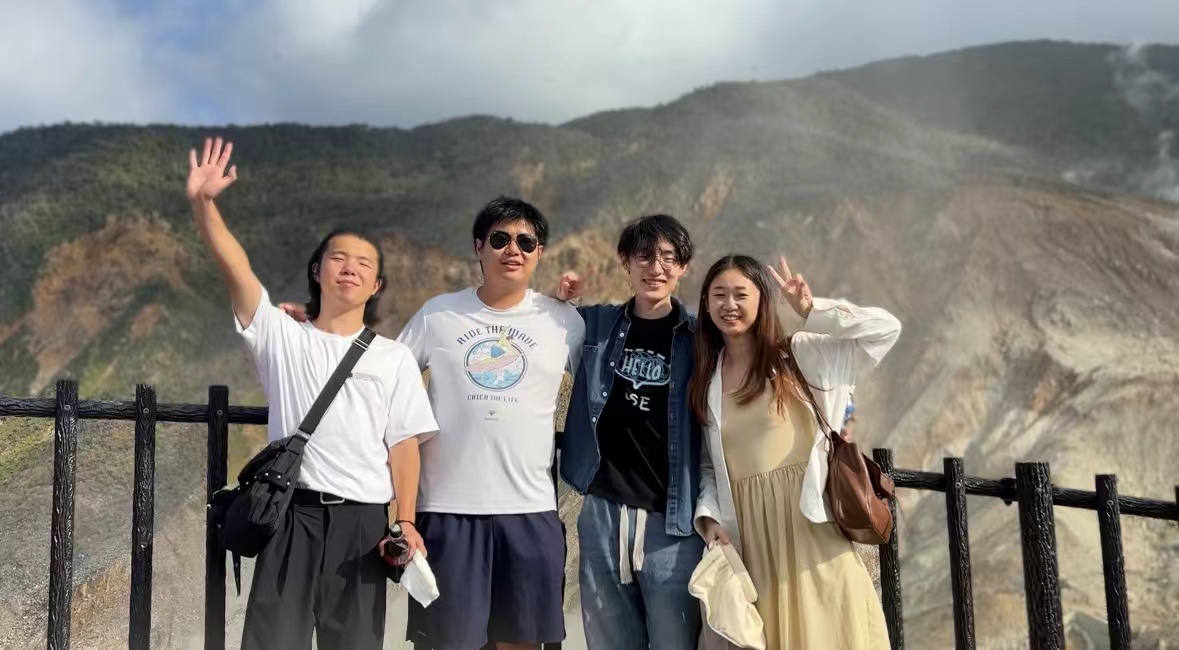
Team Name: Energy Victory (EV)
Team Slogan:
Title: Drawing the Blueprint of Traffic Electrification with Digital Twin
Team Members: Junxiang Zhang, Shibo Zhu, Dayin Chen and Haolan Chen
Supervisor/Mentor Name: Ying Du
Institution: The Hong Kong Polytechnic University & Shanghai Jiao Tong University
Country/Region: China and Hong Kong, China
Total Score: 83.02
2.
Team Name: PoWater
Team Slogan: Moving the moisture by free energy.
Title: Store the Surplus Renewable Energy and Use the Stored Energy for Atmospheric Water Harvest (AWH) or Dehumidification
Team Members: Haosheng Lin and Xinya Hao
Supervisor/Mentor Name: Wei Wu
Institution: City University of Hong Kong
Country/Region: Hong Kong, China
Total Score: 80.83
3.
Team Name: Lumio
Team Slogan: Green Finance, Eco Jiangsu, Low-Carbon Life, Beautiful Campus.
Title: Building a Vibrant and Carbon-Neutral University Campus
Team Members: Chuanting Wang, Zhengzhen Jiang, Fan Fei and Yinuo Chen
Supervisor/Mentor Name: Huanxiu Guo
Institution: Nanjing Auditing University
Country/Region: China
Total Score: 80.35
- The second prize winners
1.
Team Name: PKUNEVs
Team Slogan: “Preserve Nature, Prosper Together: As We Care for the Earth, It Cares for Us.”
Title: Research on Urban Charging Network Demand Characterization and Spatial-Temporal Planning Technology
Team Members: Likun Peng, Shiyin Cao, Jian Xu and Zeru Zhang
Supervisor/Mentor Name: Qing Yu
Institution: Peking University
Country/Region: China
Total Score: 78.31
2.
Team Name: Guardians of Clean Energy
Team Slogan: Illuminate the Future, Empower Clean Energy – Your Solar Sentinels in action!
Title: Photovoltaic Doctor: Smart PV Inspection System
Team Members: Wenqian Zhang, Yanzhen Zhang, Hongdi Fu and Junteng Liao
Supervisor/Mentor Name: Haoran Zhang
Institution: Peking University & South China University of Technology
Country/Region: China
Total Score: 78.25
3.
Team Name: Digitized Cleaner Cities Lab
Team Slogan: Make Cities Digitalized And Smart.
Title: AR Visualization of Carbon Emission Supported by Small World AI
Team Members: Wenjie Gong and Liyu Zhang
Supervisor/Mentor Name: Haoran Zhang
Institution: Smart City Lab, Peking University
Country/Region: China
Total Score: 76.77
- The third prize winners
1.
Team Name: HUSTGOGO
Team Slogan: Deeper regional cooperation, faster energy transition
Title: China-ASEAN Collaboration for Integrated Electricity Market Enhancing the Sustainable Energy Transition
Team Members: Yuyan Dai, Cong Peng, Ying Liu and Die Han
Supervisor/Mentor Name: Jiangyuan Fu
Institution: Huazhong University of Science and Technology
Country/Region: China
Total Score: 76.50
2.
Team Name: Green Energy Warriors
Team Slogan: Energy storage helps green the future, emission reduction creates a low-carbon home!
Title: Efficient Cold Storage Technology for Energy Transition – Wide Temperature Phase Change Cold Storage Technology with Polyethylene Glycol and Lauric Acid Esterification
Team Members: Yitong Cao, Guo Li, Yixuan Lin and Long Geng
Supervisor/Mentor Name: Changhui Liu
Institution: China University of Mining and Technology
Country/Region: China
Total Score: 74.83
3.
Team Name: Green Pioneer Team
Team Slogan:
Title: Research on the Development of Green Electricity Energy Labeling System Based on Carbon Tracking
Team Members: Yuan Sui, Pin Li, Jiahui Song and Hua Qing
Supervisor/Mentor Name: Xiaolei Bai
Institution: N/A
Country/Region: China
Total Score: 74.83
4.
Team Name: ZillionTech Intelligent PV Maintenance Team
Team Slogan: Empowering Solar Futures with Intelligent Solutions
Title: Smart Solar Guardian: Intelligent PV Inspection and Maintenance System
Team Members: Yong Sun, Haoran Zhang, Qi Chen and Yuntian Chen
Supervisor/Mentor Name: Jinyue Yan
Institution: The University of Tokyo, Peking University, China University of Geosciences (Wuhan) and Eastern Institute of Technology
Country/Region: Japan, China
Total Score: 72.69
Southeast Asian Division
- The first prize winner
1.
Team Name: Y4E Southeast Asia
Team Slogan: “Youths Leading the Energy Transition Movement in Southeast Asia”
Title: Achieving SDG 7 Through the Power of Youth: Building Youth for Energy Southeast Asia
Team Members: Jitsai Santaputra, Amira Bilqis and Alicia Tien Weei
Supervisor/Mentor Name: N/A
Institution: Youth for Energy Southeast Asia
Country/Region: Malaysia, Thailand and Indonesia
Total Score: 80.29
- The second prize winner
1.
Team Name: AGASA Initiatives
Team Slogan: “One Team, One Planet, Zero Emission”
Title: AGASA: Bioprospecting Microalgae for Decarbonization Initiatives and Urban Energy Harvesting in Air-Polluted Urban Areas
Team Members: Adnan Hasyim Wibowo, Fathan Mubina, Rani Marhyani and Tria Indah Lestari
Supervisor/Mentor Name: N/A
Institution: Sustainable Development Goals Hub, Universitas Indonesia
Country/Region: Indonesia
Total Score: 79.27
- The third prize winners
1.
Team Name: UNPAR
Team Slogan: “United in Faith, Energizing the Transition to a Greener Future.”
Title: Integrating the Social Brain and Faith-Based Initiatives: An Innovative Solution for Advancing Energy Transition Through Behavioural Public Policy
Team Members: Aditya Barus
Supervisor/Mentor Name: N/A
Institution: Parahyangan Catholic University
Country/Region: Indonesia
Total Score: 77.38
2.
Team Name: Go Green Sustainable
Team Slogan:
Title: CACA SOPAN (Carbon Capture and Storage-Solar Panel-Biotechnology): Integrated Trisystem to Maximize CCS Technology in Supporting a Circular Economy
Team Members: Josafat Pasaribu, Efraim Yunus and Renanda Wafi
Supervisor/Mentor Name: Adam Febriyanto Nugraha
Institution: University of Indonesia
Country/Region: Indonesia
Total Score: 70.00 (No video points)
South Asian Division
- The first prize winner
1.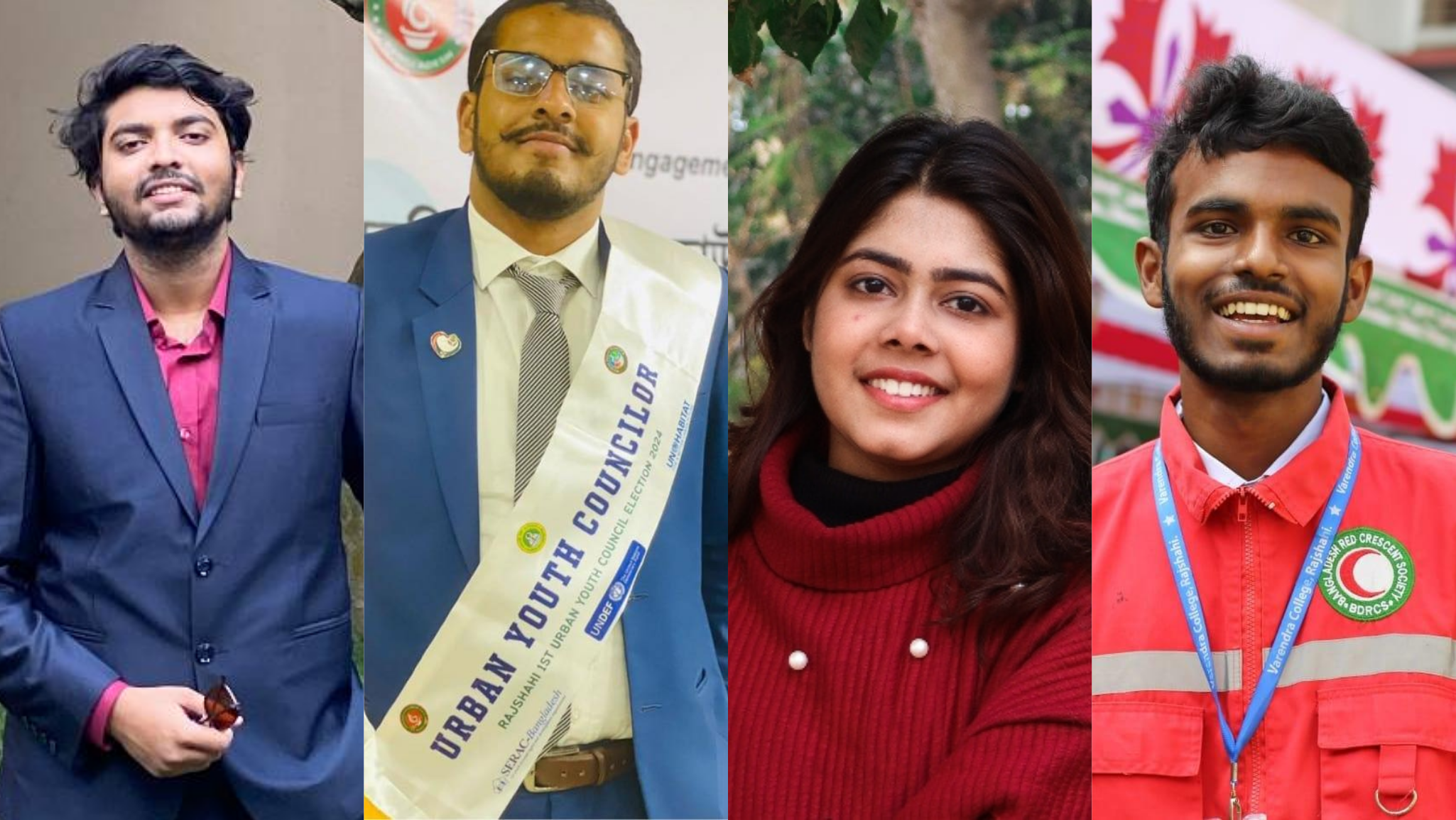
Team Name: Team AlgaeN
Team Slogan: Grow Green, Grow Power.
Title: AlgaeFuel: Powering Tomorrow
Team Members: Rajanya Tridha, Tanvir Ahmed, Sameus Sabik Sutro and Iram Ajmain Mughdho
Supervisor/Mentor Name: N/A
Institution: AlgaeN
Country/Region: Bangladesh
Total Score: 83.83
- The second prize winner
1.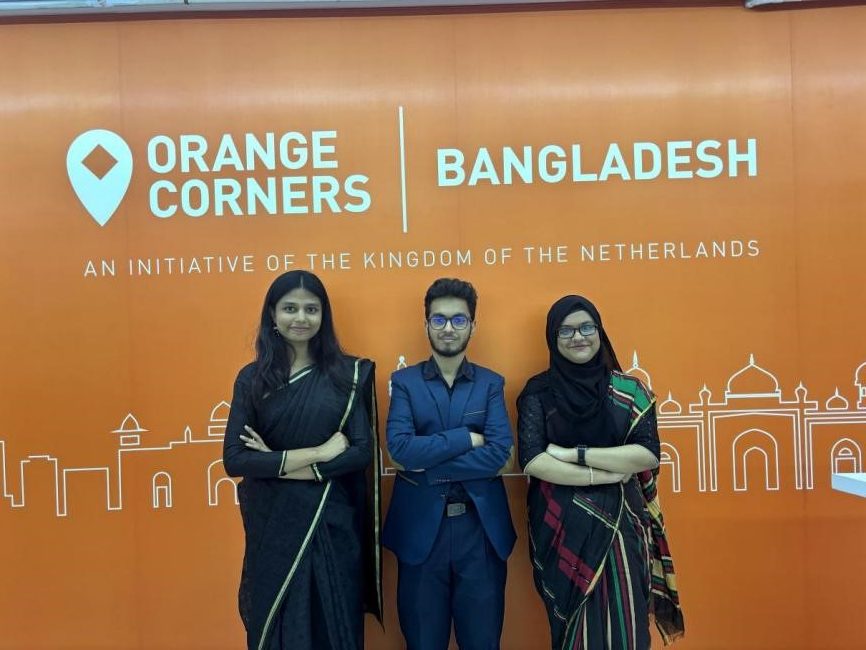
Team Name: Team Veni Vidi Vici
Team Slogan: Eco-friendly, from peel to spark—Nutrispark lights up the dark!
Title: NutriSpark Tech: Transforming Banana Peels into Electricity
Team Members: Fahmida Sultana Naznin, Takbir Hossain and Kazi Samia Fairuj Sejuti
Supervisor/Mentor Name: Celia Shahnaz
Institution: BUET
Country/Region: Bangladesh
Total Score: 79.60
- The third prize winner
1.
Team Name: GEMS Team
Team Slogan:
Title: GEMS-Grassroots Energy Management Support
Team Members: Shradha Pandey, Naman Mishra and Anushka Mishra
Supervisor/Mentor Name: Abhishek Dubey
Institution: GEMS
Country/Region: India
Total Score: 71.15
African Division
- The first prize winner
1.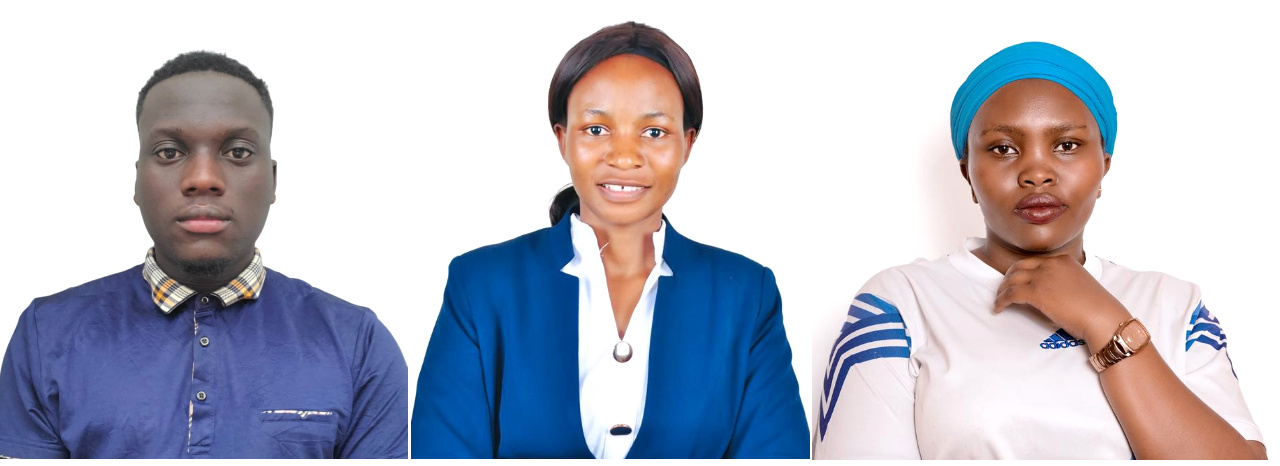
Team Name: Kyuka Ventures Innovation Hub
Team Slogan: Energy that Never Rests.
Title: Plastics to Fuel
Team Members: Sonko Jamal, Matini Janepher and Abenaitwe Humayiya
Supervisor/Mentor Name: N/A
Institution: N/A
Country/Region: Uganda
Total Score: 89.08
- The second prize winner
1.
Team Name: Climate Smart Irrigator
Team Slogan: “Green Planet For All”
Title: Climate Smart Irrigation
Team Members: Edmond Ng’walago, Cornel Mtavangu and Chanda Chalwe
Supervisor/Mentor Name: David Meyer and Nteranya Sanginga
Institution: N/A
Country/Region: United Republic of Tanzania
Total Score: 78.08
- The third prize winners
1.
Team Name: Guinea Eco Innovators
Team Slogan: Reinventing the Future: Let’s Transform Waste into Renewable Energy and Biofertilizers for a Greener Tomorrow!
Title: Transforming Waste to Energy: Moonsoftbio’s Sustainable Solution for Africa’s Energy Transition
Team Members: Gbadé Koivogui, Suzanne Toupou, Jaques Dobo Beavogui and Antoine Topka Soua Haba
Supervisor/Mentor Name: Ouo Ouo Jonas Sagno
Institution: MoonSoftBio
Country/Region: Guinea
Total Score: 76.67
2.
Team Name: N/A
Team Slogan: From Stories to Solutions: Powering Equitable Futures
Title: Empowering Voices: Scaling COP Mashinani for Regional Energy Justice and Resilience Across Africa
Team Members: Nelson Chege and Sam Moseti Nyamwange
Supervisor/Mentor Name: N/A
Institution: Seatrust Institute
Country/Region: Kenya
Total Score: 76.00
Mixed Regions and Others
- The first prize winner
1.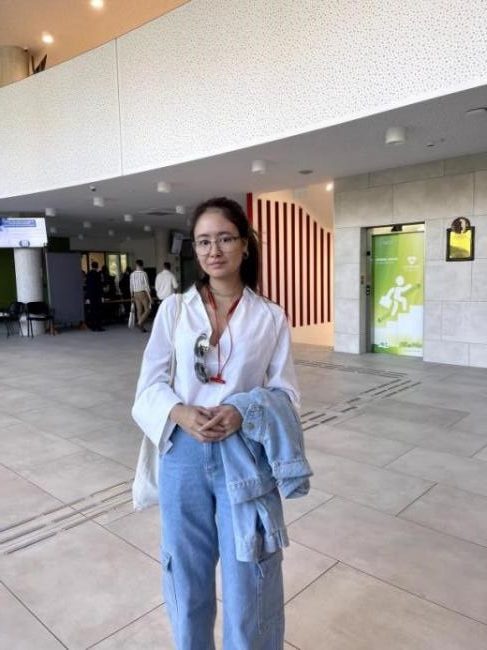
Team Name: N/A
Team Slogan: Turning Waste into Energy, Challenges into Strengths
Title: Biofuel of Sheep Manure
Team Members: Karmenova Dilnaza
Supervisor/Mentor Name: N/A
Institution: Debrecen University
Country/Region: Hungary
Total Score: 92.17
- The second prize winner
1.
Team Name: The Global Compasses
Team Slogan: “Veni,Volti, Vici: paving the way towards impactful RES careers”
Title: Energy Transition Careers Compass
Team Members: Laura Melo Amaro, Areti Aikaterini Stefani, Aline Bolis and Adriana Magli
Supervisor/Mentor Name: Pedro Sereno
Institution: European Youth Energy Network
Country/Region: Brazil, Italy, Greece and Portugal/Spain
Total Score: 86.25
- The third prize winner
1.
Team Name: ENERGIZED
Team Slogan: Power up, get your journey energized.
Title: ENERGIZED App
Team Members: Vera Allue
Supervisor/Mentor Name: N/A
Institution: EU Neighbours East
Country/Region: Spain
Total Score: 82.17
ISETS Youth Declaration
Dec 4, 2024
Bangkok
On December 4, 2024, a Youth Committee, selected from the youth leaders who participated in the Global Final of the ISETS-ESCAP Global Competition of Youth Voice on Energy Transition, presented this declaration. It outlines a unified call for the establishment of a Youth Energy Network dedicated to advancing energy innovation, entrepreneurship, and youth engagement in the energy transition.
Youth potential: Youth have a unique and crucial role in the energy transition. They bring fresh perspectives, creativity, and drive to shaping policies, developing new technologies, and advancing energy efficiency. By innovating in clean energy technologies and engaging in entrepreneurship, youth are well-positioned to deliver solutions that address the challenges of energy transition. Their involvement in decision-making processes will ensure that energy solutions are not only effective but also tailored to meet the needs of their generation and beyond.
Recognising the diversity of Youth: Youth are a diverse and multifaceted group, encompassing individuals from various cultural, geographical, socio-economic, and educational backgrounds. This diversity contributes to a wide range of ideas, solutions, and experiences, which are essential in addressing the complex challenges of the energy transition. Acknowledging and valuing this diversity ensures that all youth, regardless of their circumstances, can contribute to and benefit from the energy transition process.
Tailored approach is needed: To fully harness the potential of youth in the energy transition, a tailored approach is essential. Given the diverse backgrounds, experiences, and needs of young people, energy solutions and engagement strategies must be customised to resonate with different groups. Targeted support, resources, and opportunities are essential to ensure youth from all sectors, including marginalized and underrepresented groups, have the tools and pathways to succeed in driving energy innovation.
A Youth Network: A Youth Energy Network is needed to facilitate collaboration among youth organizations and to promote youth engagement in the energy transition. This network will provide youth with a platform to connect, exchange ideas, and collaborate on projects aimed at solving energy challenges. It will support youth entrepreneurs in establishing energy start-ups, providing access to business models, capacity-building, and financial resources. By fostering innovation and entrepreneurship, the network will directly contribute to the achievement of Sustainable Development Goals (SDGs), while empowering youth to lead the global energy transition.
Inclusivity and equal access: The Youth Energy Network must be inclusive, ensuring that all young people have equal access to opportunities, resources, and decision-making spaces. By embracing the diversity of youth—across all genders, ethnicities, disabilities, and economic backgrounds—the platform will foster creativity, innovation, and global collaboration. This inclusivity is essential to ensure that youth from every corner of the world have a meaningful role in shaping a just, sustainable energy future.
Understanding youth: To effectively engage youth in the energy transition, it is essential to first understand their diverse perspectives and priorities. Youth are not a homogenous group; they come from varied backgrounds that shape their views on energy issues.
Youth survey: One way to gain this understanding is through youth surveys, which can capture their concerns, assess their level of awareness and involvement in energy-related matters, and identify the most effective strategies for engagement. This understanding is crucial for prioritising initiatives and ensuring that youth engagement strategies—whether through media campaigns, capacity-building programs, or public awareness initiatives—are aligned with the needs and expectations of youth.
Continuous Support for Youth Energy Innovators: While the Youth Energy Platform will serve as a vital collaborative space for young innovators, it is important that the platform is continuously supported through institutional and policymaker collaboration. This support is needed to provide capacity-building programs, business incubation services, and financial assistance, helping youth to scale their innovations and bring them to market. Moreover, ongoing support will help young entrepreneurs navigate the critical steps of refining technological innovations, securing patents, and turning solutions into viable business opportunities.



